

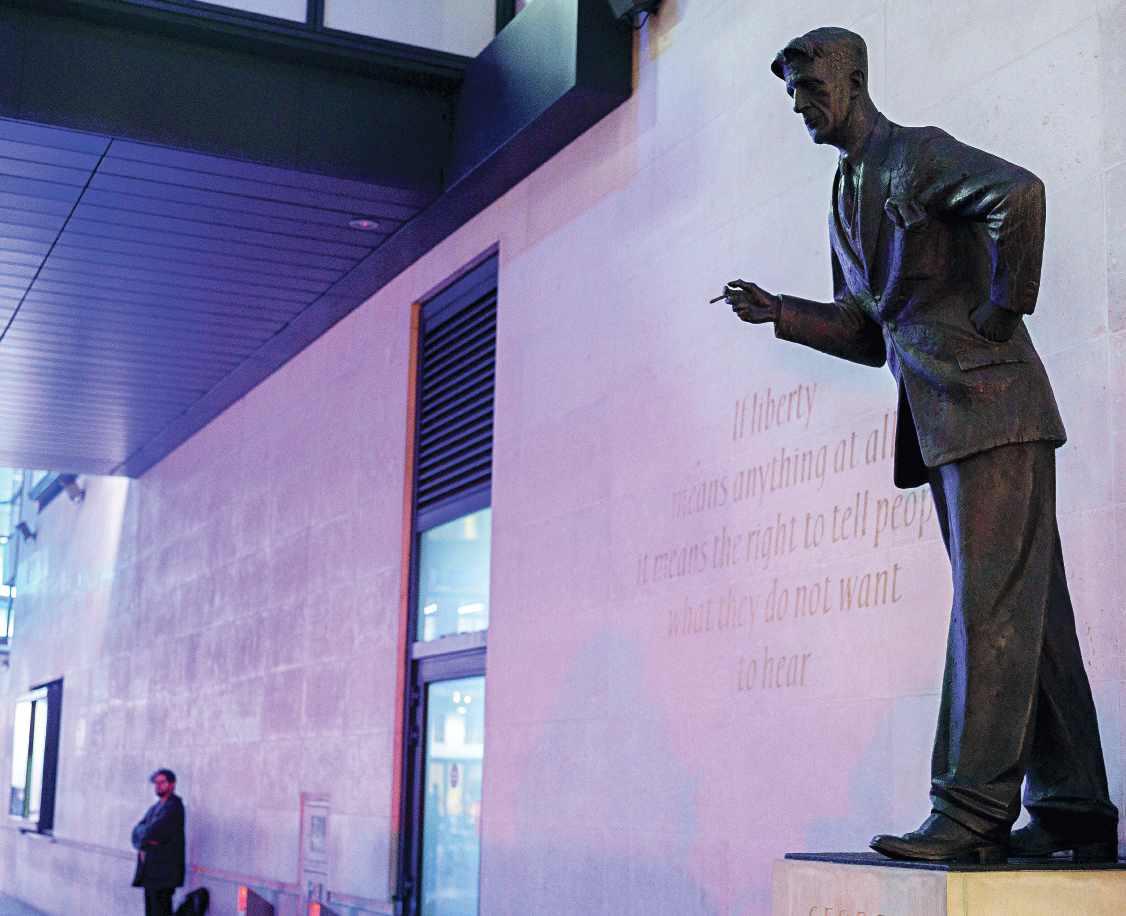

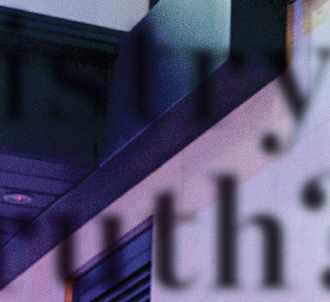







A statue of George Orwell, cigarette in hand, stands proudly outside Broadcasting House. One wonders what the great moralist would make of the state the corporation finds itself in today – one that soft-pedals on Islamism, refuses to call Hamas terrorists, refers to women as “pregnant people” and describes illegal migrants as “undocumented people attempting to cross the Channel”.
The broadcaster Orwell worked for in the 1940s has drifted disturbingly close to becoming the very Ministry of Truth he imagined in his masterpiece 1984 – a department devoted to revision and o cial falsehood.
wing is not as bad as its military wing) have resigned, accused of fostering a culture of groupthink so rigid that logic is stifled in the name of inclusivity and impartiality.
Our national broadcaster, which charges us all £15 a month, has lost its grip on clarity and truth. Orwell had a word for it: Newspeak. The manipulation of language until reality itself becomes negotiable.
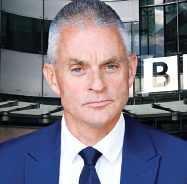

After years of controversy, and with its charter set to expire in two years, the corporation is at its lowest ebb. Its director general Tim Davie and head of news Deborah Turness (who instructed sta that Hamas’s political




















the weeks after 7 October 2023, of
The rot that has spread for years came sharply into view in the weeks after 7 October 2023, when the Board of Deputies met BBC director general Tim Davie and members of his senior team to express outrage at the corporation’s refusal to describe Hamas’s barbaric assault as terrorism and its apparent readiness to treat information peddled by the “militant group” as credible. Those present recall that Davie was the only one in the room who seemed to be genuinely listening.
Two weeks ago, the Daily Telegraph published a dossier by Michael Prescott, an Continued on page 2 itself becomes negotiable.

















Communal leaders have called on the BBC to issue a direct apology to Britain’s Jewish community after a damning internal report exposed clear bias in the corporation’s coverage of the israel-Hamas conflict and its handling of antisemitism, writes Lee Harpin.
In an unprecedented move, BBC director-general Tim Davie and news chief Deborah Turness both resigned last Sunday following the release of a report by former journalist Michael Prescott.
The report revealed a BBC Panorama programme – broadcast just a week before the US election – spliced together two separate sections of a speech by then-president Donald Trump, making it appear he encouraged the Capitol Hill riot.
Trump has since threatened a $1bn lawsuit, accused the broadcaster of “defrauding the public” and said he has an *obligation” to force the BBC to apologise for the edit.
However, the Prescott Report also highlighted concerns about other areas of the BBC’s output, including its coverage of the war in Gaza and reporting on trans issues.
Prescott, an external adviser to the BBC’s Editorial Guidelines and Standards Committee until June,
accused BBC Arabic of giving “unjustifiable weight” to Hamas’ claims and of “a desire always to believe the worst about Israel”.
In an 8,000-word memo leaked to The Telegraph, Prescott said BBC Arabic provided a platform to journalists who had made extreme antisemitic comments One individual who stated Jews should be burned “as Hitler did” appeared as a guest on BBC Arabic 244 times in 18 months.
Another, who described Israelis as less than human and Jews as “devils”, appeared 522 times in the same period.
The report also alleged BBC News deputy director Jonathan Munro defended BBC Arabic against criticism of antiIsrael bias.
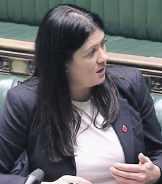
Responding to the resignations of Davie and Turness, Board of Deputies president Phil Rosenberg said: “While the BBC chair Samir Shan has apologised for some of the issues in the Prescott Report, he continues to be in denial about the aspects that relate to the BBC’s bias in its coverage of the Israel-Hamas con-

flict and its attitude towards antisemitism. *If we are to believe change at the BBC is possible, there must be an acknowledgment and apology, both to the Jewish community and to the country as a whole, for the broader issues raised by Prescott.
“The BBC should also release the Grossman report, which Prescott referenced, without delay, so the public can fully understand the scale of this challenge and consider an
appropriate response.
“If the BBC is to get out of this hole, it must stop digging. The corporation must not waste the opportunity it has been a orded to get its house in order.”
The Jewish Leadership Council described Prescott’s report as “deeply alarming”, saying: “It exposes serious and widespread failings of impartiality, systemic bias and behaviour falling below the standards expected of a respected broadcaster. Repeated reports of

BY LEO PEARLMAN TV AND FILM PRODUCER
The truth is no longer deniable. The Prescott Report was the final, damning confirmation of what many of us have said for years – our national broadcaster has been doing what we’ve accused it of all along.
It is the inevitable conclusion to one of the most shameful chapters in the BBC’s history, a story of how a minority community was gaslit, lied to and endangered from the top down. They’ve made Jews less safe, not only here in Britain, but anywhere the BBC’s influence reaches.
The report shows, in black and white, that BBC coverage “minimised Israeli su ering” and much else.
And then the truly sickening part: BBC Arabic, part of the World Service, gave a platform to journalists who had publicly called for Jews to be burned or described Jews as “devils”.
And perhaps worst of all, these lies, broadcast to millions, have breathed new life into one of the oldest and most poisonous antisemitic tropes: That Jews control the media, run the world, sit in
smoke-filled rooms, plotting misfortune and manufacturing consent.
In other words, the BBC’s failure to confront antisemitism has amplified the very myths that have justified our persecution for centuries.
It is the same intellectualisation, the same genteel rationalisation, that Louis Theroux indulged in during his podcast with the clown from the Glastonbury stage, the man who shouted “Death to the IDF”, who dismissed Jewish pain, who equated Zionism with white supremacy.
Theroux didn’t challenge him. He legitimised him. He found empathy and justification for hate.
And the same stalwarts of our industry, the people who applauded him, who rushed to defend the indefensible, will tell you calling this antisemitic is “ludicrous”. They’ll whisper about “those people driving this”. Those people. Always those people.
Every other minority is a orded the right to call out hatred when it’s directed at them
But Jews?
We are treated as fair game for conspiracy and contempt, used as a dog whistle by politicians from Your Party and the Greens, by NHS doctors, by aca-
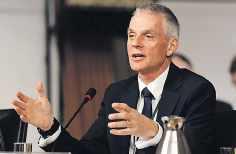
demics, and yes, by many in the creative industries. We’ve heard the lines and so, we learnt to hide. But no longer.
The old trope, perfected by Nazis, refined by the Soviet Union, exported by Islamists, recycled by the far left is that Jews operate as a secret cabal, pulling strings. It’s not just false, it’s lethal.
I have every right, to call out racism, Jew-hate, antisemitism wherever and whenever I see it, and by whatever name I choose. I am what I’ve always been, a Jew who cares about his community, worries for his children, still dares to believe we have a future in this country.
I’m not your insidious myth. I’m a minority standing here, telling you I won’t be silenced. I’m not plotting your downfall. I’m demanding our dignity. And I’m not going anywhere.
anti-Israel bias have already eroded the Jewish community’s trust in our national broadcaster. “
The JLC noted BBC Arabic’s “deeply troubling” record had been well-documented for years and had only worsened since October; its coverage of the war in Gaza had repeatedly downplayed and whitewashed Hamas’s atrocities and, in some cases, platformed individuals who openly praised or justified the 7 October attacks.
Culture secretary Lisa Nandy also told the Commons this week there are “serious concerns and failings” within the BBC Arabic service. She said she had been in front of MPs “too many times” to provide updates on “editorial failings” such as the Gaza documentary narrated by the son of a Hamas o cial and coverage of the Bob Vylan concert at the Glastonbury Festival.
Nandy said the BBC “must renew its mission for the modern age”, while warning two senior departures alone would not solve the broadcaster’s deep-rooted challenges.
She said: ”I am pleased the chair of the BBC, Dr Samir Shah, has accepted where the institution has made mistakes … and is setting out concrete actions.”
Continued from page 1 independent adviser to the BBC’s Editorial Guidelines and Standards Board. His findings exposed the corporation’s ever-worsening failures in its coverage of Israel and Gaza – but what is most revealing is what the dossier leaves unsaid.
Perhaps most damning of all is that an article about UN emergency relief coordinator Tom Fletcher’s claim that 14,000 babies in Gaza were at risk of dying within 48 hours still remains on the BBC website. No less than 13 parliamentarians echoed the lie despite it quickly emerging that this figure referred not an imminent mass deaths but to infants at risk of severe malnutrition over the course of an entire year. Why is such discredited nonsense still given a platform by our national broadcaster?
Richard Miron, a former BBC reporter, identified the core problem in this newspaper earlier this year. “At BBC World Service Training, I would instruct sta in checking sources and more. After leaving the BBC, I worked as a consultant to guide BBC journalists in covering the Israeli/Palestinian conflict. This module is now a thing of the past.” Restoring standards requires more than apologies. It will demand oversight, renewed training and a return to the basic craft of journalism. That starts by calling a spade a spade, a woman a woman and a terrorist a terrorist. Orwell wrote in 1984: “The Party told you to reject the evidence of your eyes and ears. It was their final, most essential command.” The BBC appears to have followed it.
An animal rights group that claims to fight cruelty to pigs is spreading vile antisemitic conspiracy theories – blaming “Zionists” for the Holocaust, 9/11 and the war in Ukraine – while boasting celebrity backers, Jewish News can reveal, writes Daniel Sugarman.
Farms Not Factories, which campaigns for consumers to buy only local, high welfare and ethically produced pork, lists celebrities including Hugh Grant, former Channel 4 TV presenter Jon Snow and Game of Thrones actor Jerome Flynn on its “high profile supporters” page.
However, the group also publishes what it calls “newsletters”, tens of thousands of words long, which quote copiously from a range of deeply unpleasant sources pontificating about Jews, Israel and the Shoah as well as promoting anti-vaccination and anti-Ukraine themes.
The newsletters tend to begin with the line “The purpose of our newsletter is to give you important information that is censored in the mainstream media.” While much of the material is quotes from different sources, the newsletter also introduces topics with its own wording.
Examples from the past few months, include:
“In the 1930s the RothschildRockefeller alliance introduced music frequency science that would alter people’s mental state into disruption, disharmony and disunity to brainwash them to be ready to fight in World War II.”
“Watch a banker explain how during WWl the German and US Central banks were run by two Zionist brothers.”
“Murdering non-jewish children is allowed in the Talmud.”
“Charlie Kirk’s words that helped get him killed by the zionists.”
“Zionists are liars, thieves and murderers in their pursuit of world domination”
“The zionist diaspora controls governments across the world, forever aiding their zionist brothers in the Middle East to access oil and other resources belonging to Arab nations.”
A list of “trusted sources” referred to regularly by the newsletter includes Palestine Declassified, the Iran state television show produced by former MP Chris Williamson and disgraced academic David Miller, sacked in 2021 by Brisrol University.
Several scripts from Palestine Declassified were shared by the publication, with one featuring Dr Rahmeh Aladwan, a doctor recently arrested after a spate of social media posts about Jewish supremacy and expressing support for Hamas.
The newsletters also quote directly from notorious far-right sources, such as a TV interview with Eustace Mullins, an American white supremacist and extreme Holocaust revisionist. Farms not Factories shared the script of a Mullins monologue claiming the last two letters of “Nazi” stood for “Zionists”.
The script also said “the con-

centration camps were run by the zionist Jews in order to punish and get rid of the anti-zionist Jews, which they did” and that German generals at Nuremberg after the war were executed “because they didn’t want them around to testify about the alliance between the Nazis and the Zionists”.
The same newsletter quoted at length from an article in The Unz Review, a website set up by far-right Holocaust denier Ron Unz. The large excerpt quoted included mention of what it described as “organised Jewry revenge genocides (eg. Palestinian, Ukrainian)”.
It said: “For the first time, there exists a rational counterforce capable of challenging international Jewish finance and its war machine. That force is China and trinity allies, Russia and Iran.”
The Unz Review excerpt, as quoted
by Farms not Factories, also included the claim that “the ‘War with China’ Rothschild zionist long game entails squeezing China through nuclear and biological weapons threats, NGO revolts, economic warfare, terrorist attacks, proxy wars, and low-grade chest-puff military encounters.
“Through this pressure, they hope China either suffers internal collapse or relents to international Jewish finance gaining a foothold in the Middle Kingdom.
“The international bankers snuck into the United States through Civil War borrowing. Fifty years later they implemented the Federal Reserve Act of 1913, effectively turning the US economy over to global finance.
“The international bankers want a Chinese Federal Reserve. If China agrees to behind-the-scenes Sassoon-rule, hostilities end…
“The battle for primary global
influencer is between China and international Jewish finance.”
Another Unz Review article quoted by Farms not Factories made the claim, in the excerpt quoted: “Traditional religious Judaism” believes that “Jews have divine souls and goyim do not, being merely beasts in the shape of men. Indeed, the primary reason for the existence of non-Jews is to serve as the slaves of Jews, with some ... rabbis occasionally stating this fact.”
Top environmentalist Ben Goldsmith, who with his brother Zac is listed among supporters of Farms not Factories, told Jewish News he had asked for their names to be removed from the FNF website, saying they were “appalled to discover we are still publicly associated”.
“Once upon a time this small charity did brilliant work towards ending the scourge of factory pig farming. But its founder has succumbed to myriad dark-web conspiracy theories, and worse besides.” Farms Not Factories sent Jewish News a legal threat warning against publication of this article after being asked for comment.
A letter from the group’s lawyers included the statement: “The organisation’s newsletters share and repost material that is already publicly accessible. The views expressed in the articles do not necessarily frepresent those of our clients but are selected to promote open discussion on issues often overlooked by mainstream media.”
Freed Israeli hostage
Matan Zangauker this week described in chilling detail his 738 days in Hamas captivity – from his violent abduction at Kibbutz Nir Oz to the underground tunnels of Gaza – saying he “endured hell” before finally being freed.
The 22-year-old told Israel’s N12 TV channel he recalled being dragged from his home on 7 October, 2023, beaten by crowds, and forced across the border.
“I saw black. I was almost fainting,” he said. “Inside a tunnel, I saw the body of a dead Israeli soldier.”
Held mainly underground, Zangauker said he was moved between tunnels and safe houses, often denied food and beaten by guards who assumed he was a soldier.
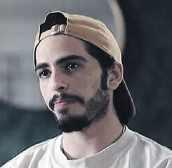
“We were in a small cage, two mattresses. One tiny blanket,” he recounted. At one point, he said, captors disguised him among civilians and forced him to walk to Rafah, near the coast.
“The IDF was nearby. We could hear the waves,” he said, recalling nights in a mosque and later a tent by the sea.
Zangauker described being filmed repeatedly for Hamas
propaganda and intervening to protect another hostage who was being whipped.
“I had to step in. I took the blows instead.”
A turning point came when a tunnel commander recognised him, telling him: “Your mother is leading demonstrations; she’s turning the whole country upside down.”
Zangauker said seeing his mother Einav’s speeches on television gave him strength. “It made me very happy. It helped me,” he said.
Twice, nearby airstrikes filled the tunnel with gas, making breathing difficult
He said he didn’t believe he was free until he was placed in a Red Cross vehicle headed for Israel.
“It was crazy. A moment that doesn’t sink in,” he said.
Israel’s parliament descended into uproar as three Arab-Israeli lawmakers were ejected from the chamber during a heated debate on a bill extending the death penalty to terrorists convicted of murdering Israelis.
The proposal, introduced by opposition party Yisrael Beiteinu and backed by national security minister Itamar Ben-Gvir, passed its first reading late on Monday by 36 votes to 16.
Despite the chamber being half empty, coalition support ensured the measure’s approval.
The bill gived judges the option to impose a death sentence in terrorism cases that result in fatalities. While the penalty already exists under Israeli law, it has been used only twice: against IDF officer Meir Tobianski in 1948, who was later exonerated, and against Nazi war criminal Adolf Eichmann in 1962.
Tensions flared during the debate with Ra’am MK Waleed Taha accusing Israel of “killing civilians in Gaza”, prompting jeers from coalition members.
Hadash-Ta’al leader Ayman Odeh was removed after calling Ben-Gvir a “terrorist”, while his party colleague Ahmad Tibi was later
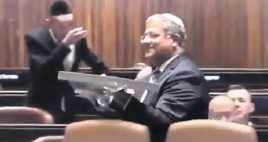
expelled following a separate shouting match with far-right lawmakers.
Ben-Gvir, who has long championed the measure, said it should be strengthened to make the death penalty automatic for convicted terrorists. “Every terrorist who goes out to murder must know that the death penalty will be imposed on him,” he said.
Prime minister Benjamin Netanyahu, who previously opposed the proposal, is now in following the Gaza ceasefire bnut the legislation must still pass three further readings before becoming law.
As the corporation reels from senior resignations and a $1bn Trump lawsuit threat, Daniel Sugarman examines some of its worst failures
Last week, The Telegraph reported that Michael Prescott, who until four months ago was an independent advisor to the BBC’s Editorial Guidelines and Standards Board, had sent a document to the BBC’s board, which contains some of its most senior executives. This dossier detailed the severe problems with bias present in the UK’s national news broadcaster, an organisation publicly dedicated to objectivity.
Last Thursday, days before BBC directorgeneral Tim Davie and head of news Deborah Turness resigned, the newspaper published the full dossier. It does not focus exclusively on the issue of the Israeli-Palestinian conflict – other sections include the BBC’s skewed US election coverage – the key reason for the resignations – serious misreporting relating to racial diversity and a high level bias on issues relating to biological sex and gender.
However, a significant section of the dossier looks into a series of examples of concerning anti-Israel bias by the broadcaster–primarily on the BBC Arabic channel, but with examples also present on the Corporation’s English-language news offerings, including BBC News and Newsnight.
In Mr Prescott’s view, which may strike a chord with many British Jews, “the [BBC’s] executive repeatedly failed to implement measures to resolve highlighted problems, and in many cases simply refused to acknowledge there was an issue at all… On no other occasion in my professional life have I witnessed what I did at the BBC with regard to how management dealt with (or failed to deal with) serious recurrent problems.”
Here are the 10 most concerning Israelconnected revelations from the Prescott dossier:
1. BBC Arabic’s sharply divergent reporting of the Israeli-Palestinian conflict, compared to the BBC’s English language website
An internal BBC report compared five months of coverage (7 May – 6 October 2024) of the Israeli-Palestinian conflict between the BBC’s English language website (535 articles) and BBC Arabic (523 articles).
According to the Prescott dossier, this exposed “stark differences” between the two. The English language website posted 19 different stories about hostages taken by Hamas on 7 October 2023 – BBC Arabic had posted none. By contrast, however, all articles critical of Israel posted on the English language website had also been posted on BBC Arabic.
Prescott also said that “the English-language website had three times as many stories that primarily dealt with the suffering of Israelis. These included the horrors faced by hostages held captive in Gaza, how traumatised Israeli communities were coping, Hamas and Hezbollah rocket attacks on residential Israeli communities and growing antisemitism.
“These were all missing from BBC Arabic.” He also said there had been four articles
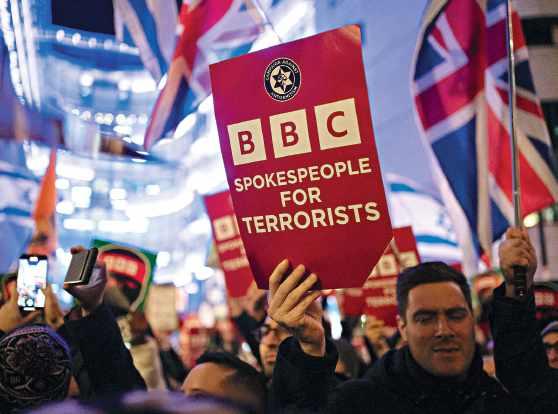
critical of Hamas on the English language website. None had been put on BBC Arabic.
2. BBC Arabic’s coverage of the story of the girl enslaved by ISIS and liberated from Gaza
Fawzia Sido was a Yazidi woman captured by ISIS in Iraq at the age of 11, and who was “married” – a sex slave – to a Palestinian fighting in Syria, bearing two children before she was 15. After her “husband” was killed, she was smuggled back to Gaza in 2020, remaining under the control of her “husband’s” family, as well as Hamas. She was liberated by Israeli soldiers.
The BBC News English website covered the story, which, as Prescott said, “detailed her escape and rescue, with backup for her claims from the US State Department and the Iraqi authorities.”
However, as Prescott showed, the BBC Arabic version of the story was markedly different – the headline was “Israel says ‘Yazidi prisoner returned to Iraq after ten years in Gaza,’ Hamas tells BBC ‘Israel narrative is fabricated’”, while “the bulk of BBC Arabic’s story is taken up by a 582-word-long statement by Hamas disputing the woman’s terrible story.”
3. BBC Arabic’s coverage of the October 2024 Hamas terror attack in Jaffa
On 1 October 2024, two Hamas terrorists killed seven people and injured 17. Prescott refers to “major content and tone differences” between the English language and BBC Arabic stories.
As he sets out, “The BBC News’ English website revealed how the victims included Inbar Segev Vigder, a young mother who died shielding her nine-month-old baby from harm.
“BBC Arabic covered the story under the headline: “The Qassam Brigades claims responsibility for the Jaffa operation, what do we know about it?” The report presented
the attack as a military operation and gave no information about the victims.”
4. BBC Arabic’s coverage of the Majdal Shams attack
In July 2024, Hezbollah bombed a Druze town in the Golan, killing nine children in the middle of a football match. Prescott described how the BBC English language coverage and BBC Arabic coverage were “given critically different treatment”.
As he writes, “The English language version included Hezbollah’s denials that it was responsible for the Majdal Shams rocket strike but included evidence to suggest it had bombed other sites in the area.
“The BBC Arabic story, posted four hours after the English language version, did not
include evidence linking Hezbollah to the bombing of a nearby military compound, just two miles from the football pitch, and prominently included the terror group’s denials. Its headline referred to ‘Israelis’ being killed and injured in the attack, not children.”
Furthermore, Prescott wrote, “a day-two story covered on the Arabic website contained unsubstantiated claims from Iran and Syria that Israel faked the attack as a pretext for attacking Hezbollah.”
5. The BBC’s Executive’s response to the evidence against BBC Arabic
The BBC’s executive was sent the above findings in January 2025. Prescott mentions that “one very experienced person attending the EGSC [Editorial Guidelines and Standards Committee] meeting described the findings as the most ‘extraordinary paper’ she had ever seen. It should have prompted urgent action by the executive but it did not.”
Instead, Prescott says, the deputy head of BBC News, Jonathan Munro, responded by writing: “While no service is perfect and all of us can make mistakes, we believe BBC Arabic delivers against (its) responsibilities with the vast majority of its reporting and analysis”.
Munro said BBC Arabic’s reporters were an “unrivalled source of knowledge and editorial content for the wider BBC” and had delivered “exceptional journalism during this period”.
Prescott goes into considerable detail about how Munro appeared to downplay the findings of the report on BBC Arabic.
The report sent to the BBC executive in January had shown that on BBC Arabic “there were far fewer stories from an Israeli perspective over the five-month review period than from a Palestinian perspective.
“Jonathan’s response was to ignore the review period and find stories outside the scope of the review.”
Prescott also said Munro’s response to BBC Arabic’s reporting of Hamas was to argue the
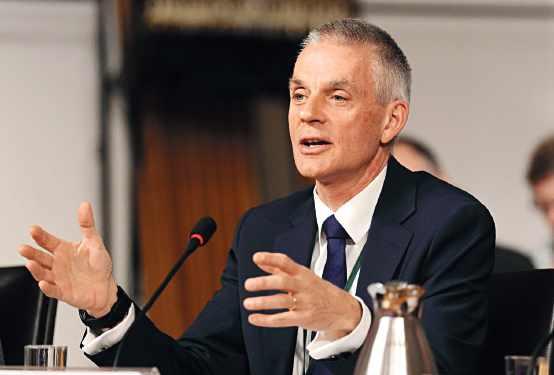
percent claim, even though concerns about its credibility were well known.”
WERE ANY PROBLEMS AT ALL
high prominence given to Hamas’ lines “helps understanding of what Palestinians in the West Bank and Gaza may be hearing”.
6. BBC Arabic’s use of deeply compromised ‘journalists’ in Gaza was far worse than previously realised Prescott describes how “media stories about the antisemitic and pro-Hamas views of journalists appearing on BBC Arabic forced another internal review into the channel in June, 2025.”
Such journalists included Samer Elzaenen – revealed by The Telegraph to have posted antisemitic comments, including suggesting Jews should be burned “as Hitler did”.
Another example was Ahmed Qannan, who described a gunman who killed four civilians and an Israeli police officer as a “hero”. A third was Ahmed Alagha, who described Israelis as less than human and Jews as “devils”
Originally it was reported that Elzaenen featured on BBC Arabic “a dozen times”. Prescott says that the BBC’s internal review showed Elzaenen actually appeared 244 times on BBC Arabic between 13 November 2023 and 18 April, 2025. Qannan appeared 217 times between 8 February, 2024 and 27 April, 2025. Alagha appeared 522 times between 21 November, 2023, and 26 April, 2025. They were consistently introduced to BBC Arabic audiences as ‘journalists’.
When the BBC responded to criticism of the use of such people, Prescott describes how the corporation “downplayed their contributions to the channel, even claiming they were just ‘eyewitnesses’.
7. BBC ignored growing concerns about inaccuracy of Gazan death toll reporting Another review into the BBC coverage of the conflict’s death toll, Prescott says, reported back to the Corporation’s EGSC in July 2024 – coming after the UN revised its own figures to show the percentage of women and children killed was lower than had been reported. Hamas, who provided these figures, based them both on hospital records, but also on “media reports” from the ‘Gaza Government Media Office’ – which is also run by Hamas. Prescott wrote that Hamas “has never explained how this number has been calculated but the majority of deaths from ‘media reports’ are women and children.”
He said both the UN and many media outlets, including the BBC, had “reported that 70 percent of all those killed in Gaza were women and children…despite growing concerns that this…methodology was unreliable…” He said that the EGSC was told that “for too long the BBC had given ‘unjustifiable weight’ to the 70
8. The BBC misreported on mass graves in Gaza, implying Israeli war crimes
Prescott describes how in both April and June the BBC reported on the discovery of mass graves in Gaza, and that “the strong implication in the coverage was that Israeli forces had buried hundreds of bodies at both sites prior to withdrawing from the area.” However, “the source for both stories was the Hamas-controlled Gaza Civil Defence Agency. This was not reflected in the coverage.”
Prescott confirms that the internal report to the BBC’s EGSC flagged: “There was no independent corroboration of allegations of war crimes, including alleged evidence of summary executions, torture and bodies found with their hands tied together”.
One BBC online story actually incorrectly implied a UN official had corroborated the reports of hands being tied.
Prescott says: “It seems that the most likely explanation was the graves at both hospitals were dug by Palestinians and the people buried there had died or been killed prior to the arrival of Israel ground forces.”
Furthermore, “the EGSC was reminded that the BBC had itself reported extensively on Palestinians digging these graves at the time. These reports had topped its bulletins.
“How could this then be forgotten in the subsequent BBC coverage that suggested something more sinister had occurred? The EGSC was offered no explanation.
“The question becomes even more pressing when you learn the journalists responsible for the first set of stories were the same journalists who wrote the second set of stories suggesting the graves were evidence of Israeli war crimes.
“Executives were presented with the evidence about how badly the BBC had got this wrong but it remains unclear what measures were taken regarding personnel or training.”
9. The BBC knew a devastating claim about Gaza starvation was incorrect. They asked an Israeli representative on
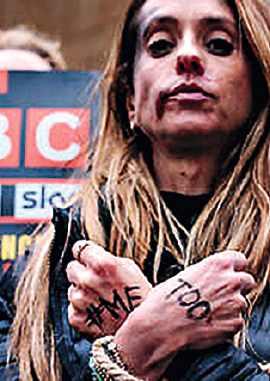
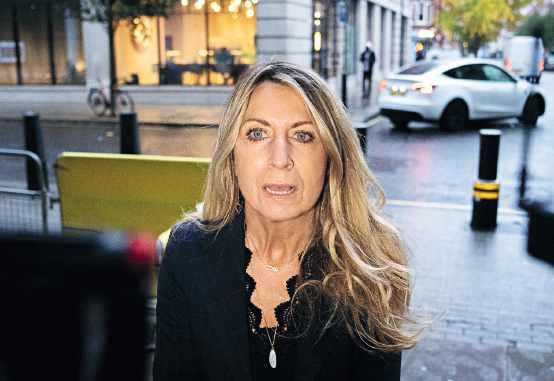
Newsnight about it anyway.
In May 2025, the UN’s Under Secretary General for Humanitarian Affairs, Tom Fletcher, claimed that 14,000 babies in Gaza were at risk of starving to death within the next 48 hours if Israel did not lift an aid blockade. The story gained worldwide attention.
Interestingly, it was the BBC itself which found the major inaccuracy in Fletcher’s claim. He had cited an IPC (Integrated Food Security Phase Classification) report – but the report actually said that 14,000 children were at risk of acute malnutrition over the course of a year if the blockade was not lifted.
The BBC, as Prescott says, “updated its online articles accordingly”. Yet, he writes, “despite this, Fletcher’s inaccurate claim was put to Israel’s UN Ambassador Danny Danon on Newsnight. Why, when the BBC knew the suggestion was wrong?”
That same programme, Prescott sets out, featured images of a baby, Siwar Ashour, who suffered from allergies and a congenital condition – and required specialist formula.
“By the time of broadcast, the BBC already knew the story was out of date and that Siwar had received the necessary formula a week earlier, was maintaining weight and had been discharged from hospital”, Prescott writes.
“None of that was revealed in the programme – meaning the BBC had broadcast another inaccurate story.”
Prescott also makes clear that “this was not the first or last time the BBC has reported stories about starvation in Gaza without telling audiences that the person highlighted has pre-existing medical conditions that might explain their emaciated appearance.”
He cited a case from August 2025, when a BBC headline informed readers that a ‘Malnutritioned Gaza woman flown to Italy dies in hospital’. This version, he described, was “shared around the world”. Only two days later was the headline updated to ‘Gaza woman flown to Italy dies in hospital’, it having become clear that “she had serious pre-existing conditions”.
10. The ICJ did not rule there was a “plausible case of genocide” in Gaza. The BBC
suggested it had – too many times to count In a BBC Hardtalk interview, the ICJ’s former president, Joan Donoghue – on the panel which considered South Africa’s submission against Israel to the court – clarified that it was not correct to say the ICJ had ruled there was a “plausible case of genocide” in Gaza. A report to the BBC’s EGSC, however, flagged “numerous instances” where the Corporation had suggested exactly that, Prescott said, describing it “being used on BBC reports, analysis and live two-ways on both television and radio. It was also cited by international editor Jeremy Bowen and on Newsnight.”
He described how the report said “there were too many instances of the BBC misrepresenting the ICJ’s ruling to be listed in full.”
Prescott pointed out that “the ICJ report runs to just 26 pages and was written in nontechnical language. Had no BBC reporter troubled themselves to read it?”
He said the internal BBC review concluded the ICJ report “is very clear and explicitly states that the court is not making any determination on the merits of South Africa’s case. The ICJ said it was only assessing whether what South Africa had alleged was potentially covered by the genocide convention.”
“The BBC needs to accept it has systemic issues with the coverage”
In what can best be described as an utterly damning ending to this section of his dossier, Prescott concludes that “the BBC is prone to downplaying criticism by saying it receives similar numbers of complaints from both sides. Looking at the evidence set out above, it seems very hard for any pro-Palestinian observers to make a compelling case the BBC has a pro-Israel bias.
“Claims against Israel seem to be raced to air or online without adequate checks, evidencing either carelessness or a desire always to believe the worst about Israel. The errors come thick and fast, sometimes with ‘eyewitness’ testimony from locals who have tweeted in praise of the 7 October killings and worse.
“The BBC needs to accept it has systemic issues with the coverage. Only then can the process properly begin to fix the problem.”
by Candice Krieger candicekrieger@googlemail.com
Trailblazers from the Jewish tech and digital world came together at Labs House in London on Monday to celebrate the Jewish News Digital and Tech Young Business List.
Created in partnership with LabTech, the list showcased ‘50 under 40’ of the community’s top talents making an impact in the tech and digital world.
Some of the most exciting Jewish entrepreneurs, innovators and leaders in technology in fields ranging from AI and health tech to climate solutions, digital media and tech for good turned out in force.
Among them was Sam Fromson, the co-founder of YuLife, who featured in the list’s top ten.
Alongside serving as the community rabbi of Golders Green United Synagogue, Fromson has grown YuLife into one of the UK’s most successful insurtech companies.
The company serves more than 1,000 businesses, including Capital One, Co-op, Land Rover and Tesco, manages hundreds of thousands of policies, and has earned multiple awards for its innovation and outstanding customer experience.
Giving the evening’s keynote speech, Fromson reflected on the origins of Jewish entrepreneurship, saying: “There are so many Jewish entrepreneurs who have achieved
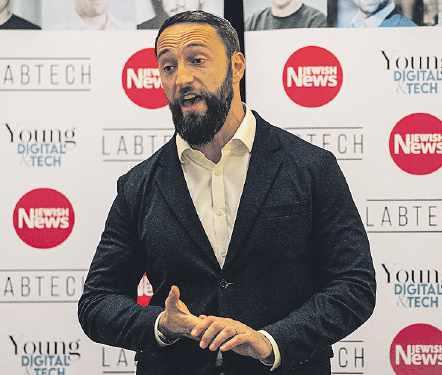
remarkable success, and it raises the question of where that quality and drive come from.
“This evening marks five years since the passing of Rabbi Sacks, who often reminded us that Abraham was the first entrepreneur.
“He had the vision to see the world through new eyes, the courage to stand for what he believed and the strength to reshape the world around him even when everyone else thought differently.
“The Midrash says Abraham stood on one side of the river while
the whole world stood on the other. That’s the essence of entrepreneurship: believing in an idea and having the will to bring it to life. In doing so, we honour the spiritual legacy of Avraham, the father of our faith.”
One of the judges, Beauty Tech Group CTO and co-founder Andrew Showman, said: “It was great to be involved in judging the Digital & Tech list and to see Jewish News shine a light on so much talent in the community. The event was full of energy – and Sam Fromson’s talk was a real highlight.”
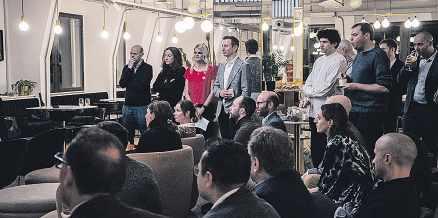

Jewish News business and tech editor Candice Krieger, who created the list with Jewish News news editor Justin Cohen and list chair Andrew Gilbert, said: “The Jewish contribution to tech and digital is thriving, and it felt very special to showcase this in such a positive way.
“The night was all about celebrating the achievement, ambition and power of innovation.
“Our ’50 under 40’ represent a new generation of Jewish talent
helping to shape and drive the digital revolution.”
Krieger added it was “inspiring” to see Jewish innovators harnessing technology to create positive change, with many “working at the intersection of tech and social impact, using innovation not just to disrupt, but solve real-world problems”.
The event was held at Lab House, part of Teddy Sagi’s LabTech, which sponsored the list. Guests enjoyed an evening of networking, celebration and recognition of the diverse and dynamic talent shaping the future of technology and digital culture.
The Tech and Digital list is the second in a series of planned Jewish News Young Business lists.
It follows the success of the creatives and media list, unveiled last year, with a property ‘40 under 40’ to be announced.
John Cleese is rescheduling his forthcoming Israel tour, citing safety concerns and the realities of travelling at 86.
The Monty Python and Fawlty Towers star was due to appear for three nights in the country later this month, after the postponement of three shows initially due to take place towards the end of June.
Tour promoter Alon Yurik Productions claimed the cancellations were linked to political pressure, saying on social media: “We deeply regret that John Cleese has succumbed to threats from BDS organisations, especially after all tickets to his performances had long been sold out.”
Cleese responded with a statement of his own, saying: “Contrary to what was claimed by Alon Yurik Productions last night – and subsequently reported – I am having to reschedule my shows in Israel planned for later this month following advice about safety. At 86, that is obviously all-important.”
Cleese’s statement makes no reference to BDS or political pressure, emphasising instead his affection for Israeli audiences –
and making it clear financial considerations were not a factor for him.
“I will rearrange these shows as soon as it’s possible – and I would be happy to perform without receiving any fee,” he said.
“I am hugely fond of Israeli audiences and send my sincere apologies to all the people who bought tickets.”
The actor and comedian has shared a series of tweets in the past few weeks relating to Israel. These included sharing a video of Israeli soldiers closing an illegally dug well in the West Bank, in which Cleese said of Israelis: “They have a contract with God, who signed it some time ago, but which they have temporarily mislaid.”
It also included quoting a tweet showing an image of Tzipi Hotovely, the former Israeli ambassador to the UK, along with a quote falsely attributed to her.
This read: “There could be a million dead Palestinian children and I could still sleep well in the evening.”
Cleese described the words as “unbelievable” – which they were.
Cleese also shared a clip of Benjamin Netanyahu talking in the 1980s, with a false translation alongside the excerpt claiming the Israeli prime minister said that “Israel owns and controls the US”, when he had in fact said no such thing.
Cleese’s quote tweet said: “So American institutions will advance Israeli interests over American ones?”
Cleese received significant criticism online for the social media posts. Eylon Levy, former spokesperson for the state of Israel, said: “John Cleese is going on a bit of a bender, tweeting endless fake quotes from Israeli leaders from dodgy accounts.
“What happened to him?”
Christina Hoff Sommers, an emeritus senior fellow at the American Enterprise Institute, also tweeted regarding the comedian’s sharing of the fake Hotovely quote, that it was “unbelievable, because the quotation is a total fabrication. What the hell happened to John Cleese?”
It is unclear when Cleese’s newly-postponed shows will be held in Israel.
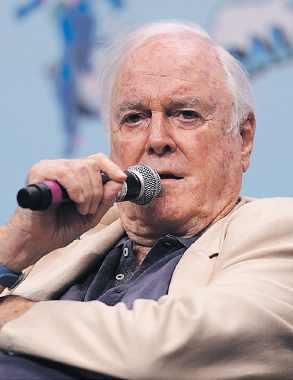
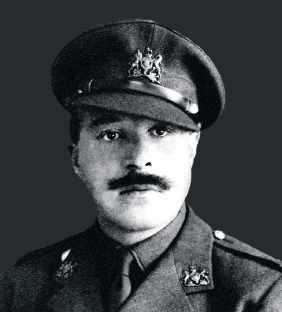

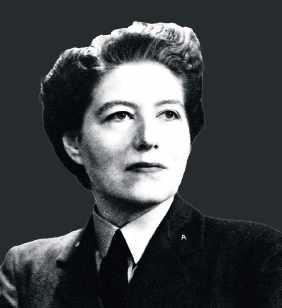





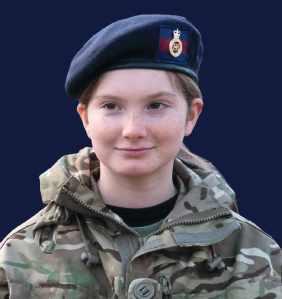
in the
the




The



Jeremy Corbyn this week declared his new political party’s commitment to “absolute opposition to Zionism,” signalling a shift toward the hardline anti-Israel stance backed by cofounder Zarah Sultana, writes Lee Harpin.
Corbyn’s comments came during a Your Party meeting in London as questions continued about the party’s direction and leadership, on which Corbyn and Sultana, both prominent left-wing MPs, have often clashed.
Sultana, MP for Coventry South, has consistently advocated for a staunchly anti-Zionist platform, while Corbyn had previously been less explicit about this stance.
At Sunday’s meeting, Corbyn stated: “The whole Zionist project was about expanding
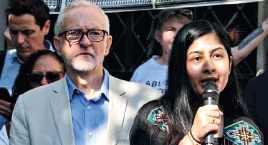
Israel forevermore, which is exactly what Netanyahu is doing with the Greater Israel project. So, yes – absolute opposition to Zionism, and absolute solidarity with the people of Palestine.”
He continued: “Zionism was a creation… I was reading about the imperial history of Zionism – actually, it first reared its head in the late 19th century, with US Zionism in 1840, influenced by British policy in the Middle East.”
His response was welcomed by the activist who had asked for clarity on the party’s position.
Corbyn also mentioned he is writing “a very long article at the moment on things to do with Palestine that I’ve been involved with over the past 40 years”, adding that the situation had become even more “horrific”.
He added, “And now we have the genocide, and it is a genocide, in Gaza. We in Your Party are absolutely in solidarity with the people of Palestine, and will be guided by them on the pol-
icies we develop and the direction we take going forward.”
In August, Sultana, who initially attempted to cast herself as co-leader of Your Party, accused Corbyn of having “capitulated to the IHRA definition of antisemitism” as Labour leader.
She has repeatedly stated: “I say it loudly and proudly: I’m an anti-Zionist.” Challenged later that month over his views, Corbyn was unable to confirm he was an anti-Zionist.
But Corbyn’s latest admission of “absolute opposition” to Zionism suggests he has now opted to clarify his stance, after facing criticism from far-left and Islamist activists over his earlier failure to support a one-state solution that excludes Israel.
A British doctor who tweeted “hahaha zeig heil” and “gas the Jews” has been let off with a warning by a General Medical Council (GMC) investigation committee, which said he did not “intend” to be antisemitic, writesJoyFalk.
Dr Martin Whyte was suspended from the British Medical Association (BMA) in 2023 after the tweet came to light, along with several others. An oral hearing on the issue was held in August this year.
A representative acting for the GMC said the tweet was “objectively antisemitic, even if this was not Dr Whyte’s intention. The full language of Dr Whyte’s tweet read: “hahaha zeig heil hahaha gas the jews hahaha just kidding but have you seen these youtube videos about the holohoax they’re pretty convincing imo…”
Raymond James, Golders Green together with Melinek Fine invites you to explore the outcomes of the Autumn budget and its impact on you.
16:00 – Wednesday 3rd December 2025 | Golders Green, London
For more information, call 020 8202 1944 or email us at GoldersGreen@RaymondJames.com
Visit our website at GoldersGreen.RaymondJames.uk.com or scan the QR code to register.
With investing, your capital is at risk. Tax treatments are subject to individual circumstances and are subject to change.
This person “was well-known ... for having made a widely circulated YouTube video in which he claimed to have trained a dog to respond with ‘a Nazi salute’ in response to the words ‘Zeig Heil’ and ‘gas the Jews’.”
Dr Whyte submitted that the tweet was the final comment in a range of six, and was meant as a response to a tweet from “a prominent figure on the political far right”.

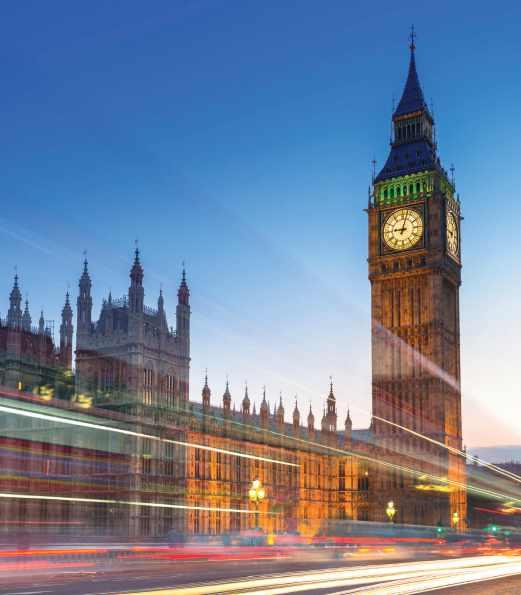
‘Fantasist’
A 66-year-old Jewish man who “dreamt about being like James Bond” has been jailed for seven years after he was convicted of trying to spy for people he believed to be Russian intelligence agents.
Howard Phillips, from Harlow, Essex, intended to help two apparent Russian operatives, ‘Sasha’ and ‘Dima’, including passing on personal information about former defence secretary Sir Grant Shapps, helping with travel logistics and booking hotels.
But ‘Sasha’ and ‘Dima’ were undercover British agents and a jury convicted Phillips under the National Security Act of helping a foreign intelligence service.
At Winchester Crown Court, judge Mrs Justice Cheema-Grubb told Phillips: “I sentence you on the basis you are not ideologically driven but motivated by money.
“You took a grave risk and didn’t care what damage you caused.”
The judge said Phillips had “a personality with narcissistic ten-
dencies and an overblown sense of his own importance”.
“He clearly kept up with current affairs and he would have been informed of the extreme actions Russia is prepared to undertake against its targets,” she added.
The trial was told Phillips acted from the end of 2023 until May 2024, offering to pass on Sir Grant’s contact details as well as the location where he kept his private plane to “facilitate the Russians in listening in on British defence plans”.
In a victim impact statement, Sir Grant said he was “shocked” by Phillips’ actions and concerned for his family’s safety.
Sir Grant said he recalled going to dinner at the Phillips’ home when he moved to the area in 2002 and added: “I feel it has been a complete breach of trust by Mr Phillips.
“What is unacceptable is one individual’s reckless behaviour exposing my entire family to the extremely serious risks that come
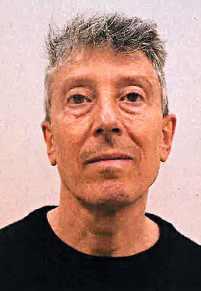
from a foreign intelligence service’s activities.
“The UK has enough to do dealing with external threats ... it’s shocking to find someone would try to sell information about the UK defence secretary to an unfriendly foreign state.”
Jocelyn Ledward KC, prosecuting, said Phillips had been motivated by money to offer a “concierge service” to the “roleplaying” agents and offered “100 percent loyalty and dedication”.
She said: “He had lived well beyond his means for some time and he had made no provision for his retirement and was reliant on the generosity of others.”
Ms Ledward added: “He accepted he did all that in the knowledge of the type of activity carried out by the agents of the Russian intelligence service on UK soil in the past including assassination and attempted assassination.”
Jeremy Dein KC, defending, said his client had made a “monumental error of judgment” and had acted to “boost his own ego” after his life had collapsed.
He described Phillips as “eccentric”, “zany” and a “fantasist” before adding his client was nevertheless “proudly British, prowestern, proudly Jewish”.
Plans to transform the area around Clifford’s Tower in York have been hailed as a rare opportunity to commemorate properly the city’s 1190 massacre of Jews – one of the darkest chapters in British Jewish history.
York councillors have approved a £10m scheme with new parkland, walkways and a play area. The tower and mound remain untouched, but campaigners say the redevelopment will reflect the site’s profound spiritual and emotional meaning for Jewish visitors.
Dr Louise Hampson, a researcher on York’s medieval Jewish community, said it represented a “once-in-a-generation opportunity” to recognise the area’s extraordinary significance.
The massacre saw some 150 Jewish men, women and children die after being trapped by a mob inside the original wooden tower, many choosing suicide over forced baptism. The stone tower was built some 60 years later.

For over 120 years JNF UK has worked tirelessly to develop the Land of Israel.
Much of our work has only been possible thanks to the generosity of our legacy donors like Eric, who regarded the work of JNF UK as vital to realising the Zionist dream.
Leaving a gift in your Will, no matter how small or large, is one of the most valuable ways you can forge an everlasting bond with Israel.
Our professional and caring Legacy Team offer a range of professional services and first-rate pastoral care.
To find out more, please get in

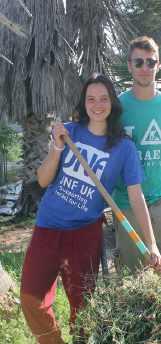




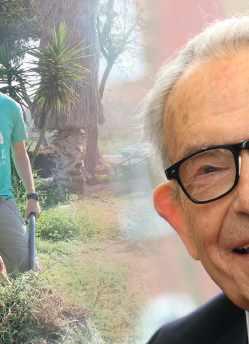

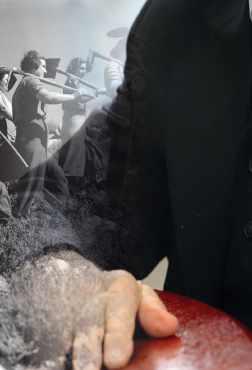








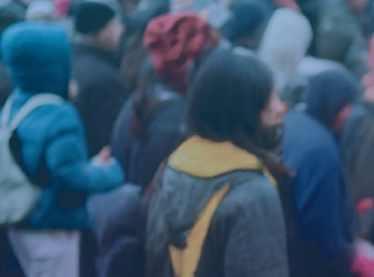






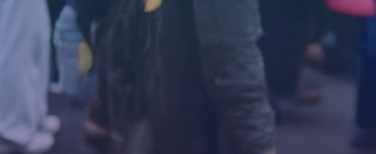
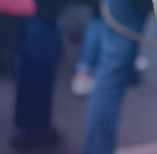

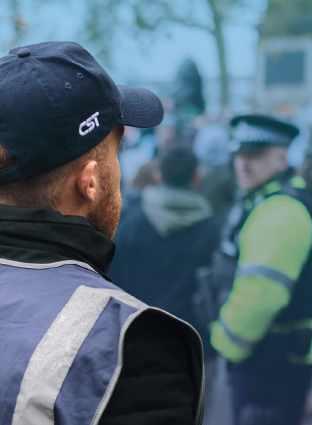
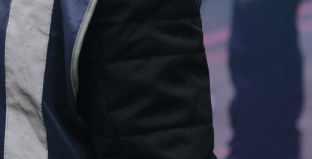
In recent years, CST has invested millions of pounds to strengthen security at Jewish schools, synagogues and other communal buildings. We have thousands of highly-trained security volunteers. We commit to protect our community, making it stronger in this crucial time of need.
The demand for our vital work is greater than ever. Stand with CST as we stand with you.
Please donate: Scan the QR code or visit cst.org.uk/together

BBC Arabic showed viewers the latest book by a released Palestinian terrorist called The Holocaust Custodian – without mentioning that one of the people he was imprisoned for his role in murdering was herself a Holocaust survivor, writes Daniel Sugarman.
Last month, the Arabic-language BBC channel interviewed two convicted terrorists, Basem Khandaqji and Nader Sadqa, who were among prisoners released by Israel in return for Hamas freeing the remaining 7 October captives. Both are members of the Popular Front for the Liberation of Palestine (PFLP,) imprisoned for their roles in terror attacks which killed Israeli civilians.
Khandaqji, who wrote books in
prison, won an International Prize for Arabic Fiction in 2024. In his interview he claimed he told his Israeli prison guards “my words will cause your colonialism pain”.
While the BBC interview does not directly ask about Khandaqji’s latest book, it features him signing copies. He was not questioned about how Leah Levine, a victim of the 2004 Carmel Market bombing he helped perpetrate, was a Holocaust survivor.
A 16-year old suicide bomber was driven to the attack site by Khandaqji, who allegedly used a journalist ID card to enter from the West Bank. In 2005 Khandaqji was sentenced to three life sentences for his role.
None of these details were mentioned in BBC Arabic’s interview.
Sadqa is the only member of Israel’s Samaritan population to have been imprisoned for terrorism. He was convicted for his role in attacks including the 2003 Geha Junction bombing. BBC Arabic focused on his status as the sole Samaritan imprisoned in Israel, and did not mention the crimes he was imprisoned for.
A spokesperson for CAMERA UK said: “For BBC Arabic to uncritically romanticise terrorists is not only in extremely bad taste but also an insult to their victims. This is especially true of Holocaust survivor Leah Levine”.
Danny Cohen, former director of BBC Television, said: “To interview these men and make no reference to their terrorist convictions is appalling. On BBC Arabic it appears
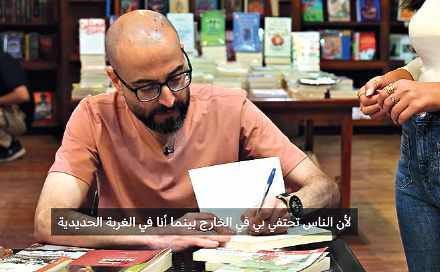
that the murder of Jews is not relevant to their reporting.”
A BBC spokesperson told Jewish News: “BBC News Arabic has featured stories from Israeli hostages and Palestinian prisoners about their personal experiences of life in captivity. The Basem Khandakji piece is clear on the nature of his sentencing
in the video introduction.
“In the case of Nader Sadqa, although the nature of his sentences and the charges against him were referenced, we acknowledge that more detailed information about his convictions should have been included for greater clarity. We are updating the story accordingly.”

Manchester Rabbi Daniel Walker has revealed that he received a death threat a few weeks before his synagogue was attacked by an Islamist terrorist and now has security guards to keep him safe, writes Nicole Lampert.
The rabbi spoke movingly about how he was ‘shocked but not surprised’ by the attack at Heaton Park shul last month.
Worshippers Adrian Daulby, 53, and Melvin Cravitz, 66, died after Jihad AlShamie smashed into the synagogue gates in his car and then started stabbing people while wearing a fake suicide vest.
“I didn’t really think something like this could happen,” said Rabbi Walker, speaking on a panel alongside former Prime Minister Boris Johnson at a European Jewish Association conference on antisemitism in Krakow, Poland. “But on the other hand, the reason so many lives were saved that day is because of the security infrastructure in place because we were worried it was going to happen.
“I think we are all saying we were shocked. We weren’t surprised. We live behind gates. Our kids, our schools are behind gates. The security guards are everywhere. I personally
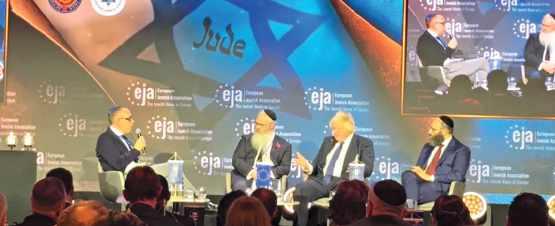
have security guards at the moment because, yes, we are worried and we were worried”.
Rabbi Walker said that just a few months before the attack he received a death threat on his telephone: “There was a message left on my machine telling me to ‘get out of Manchester, they don’t like my type around here, I support genocide.’ I laughed it off. I am not laughing anymore.”
The rabbi said similar language was used
by Al-Shamie on the day of the attack.
‘When our attacker stood on the steps looking at us through the window, he shouted, “They are killing our kids”. The first thing that occurs to me was the ridiculousness of suggesting two of the nicest people you are ever going to meet would ever harm a fly, let alone kill anyone’s kids. They were the loveliest, most wonderful people.
“But this accusation is on every Jew... that
we are somehow collectively killing kids.”
While the community now has armed guards, Rabbi Walker said that wasn’t a “sustainable” response.
“We have to be made to feel safer. We have to get back to Jewish life. We are surrounded by the police, who are immensely supportive, and the CST...but the truth is this isn’t a sustainable response in the long term.
“There has to be some tackling of the source of this; someone didn’t wake up one morning and decide to attack my synagogue, kill my friends.
“He was born in an atmosphere of hate and we have to find a way of challenging that. We have to acknowledge that the root of the hate is in the demonisation of Jews. We have to challenge that language, to make political points reasonably without inserting hate and discrimination.”
Johnson told the audience: “A false equivalence has been allowed to take root between Hamas and Israel, which is nonsense. We have to deal with the root causes of this, which is the legitimisation of antisemitic expression. It is up to politicians to call this out.’
Manfred Goldberg
The King and senior royals have paid tribute to the “extraordinary dignity, resolve and courage” of Holocaust survivor and educator Manfred Goldberg who died aged 95, writes Annabel Sinclair.
Mr Goldberg championed Holocaust education by sharing his story in schools across the country and had met Charles, the Prince and Princess of Wales and Sir Keir Starmer.
The King said that “it meant more to me than I can ever say to have been able to wish the fondest of farewells, a few weeks ago, to a truly special human being”.
William and Kate said that “his tireless work to educate young people about the Holocaust will never be forgotten”.
Mr Goldberg was made an MBE by the King at Clarence House in September for his services to Holocaust remembrance and education.
After his death was announced on Thursday, the Holocaust Educational Trust said Mr Goldberg had dedicated his life to ensuring the “atrocities of the Holocaust would never be forgotten and that antisem-
itism in all its guises would be confronted”.
In a message of condolence, the King wrote: “My wife and I were most deeply saddened to hear the news of Manfred Goldberg’s recent death and, together with everyone present, mourn his great loss in our hearts and souls.
“Above all, it meant more to me than I can ever say to have been able to wish the fondest of farewells, a few weeks ago, to a truly special human being, in whose eyes shone the light of true redemption and humanity.
“As a survivor of the unspeakable horrors of the Holocaust, I am so proud that he found refuge in Britain, where he would later tell the world of the unimaginable atrocities he had witnessed as a young boy — an enduring reminder for our generation, and generations as yet unborn, of the depths of depravity and evil to which humankind can fall, when reason, compassion and truth are forsaken.
“Indeed, I was profoundly moved to hear Manfred’s recollections at this year’s reception to mark Holocaust Memorial Day and, more recently, during his investiture ceremony.
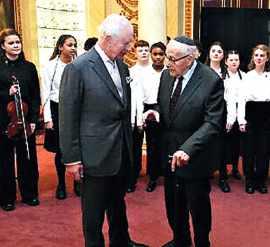
“Together with other Holocaust survivors, he became an integral part of the fabric of our nation; his extraordinary dignity, resolve and courage an example to us all, which will forever be remembered. “It was a great privilege and joy to have known him and my prayers are with his dear family and those who grieve with them.”
In a message posted on social media, the Prince and Princess of Wales wrote: “We are deeply saddened by the passing of Manfred Goldberg. Having joined him on a visit to Stutthof, we witnessed first-hand his extraordinary strength, grace and dedication to sharing his story. His tireless work to educate young people about the Holocaust will never be forgotten.”
Mr Goldberg, who was born into an Orthodox family in Kassel, Germany, on April 21 1930, was deported by the Nazis to the Riga Ghetto in Latvia in December 1941 along with his mother, Rosa, and younger brother, Herman. He spent more than eight months as a slave worker in Stutthof, where tens of thousands of Jews were killed, and its subcamps, including Stolp and Burggraben, before being liberated by the British Army in May 1945, aged 15.
He came to Britain with his mother in September 1946 to be reunited with his father, Baruch, who had escaped in August 1939, just days before the Second World War began, after securing a visa through British diplomat Frank Foley.

Former Hendon South MP John Marshall – a long-standing ally of the Jewish community in Barnet – has died aged 85, writes Annabel Sinclair.
Marshall represented Hendon South between 1987 and 1997, a seat that included synagogues, Jewish schools, and one of the UK’s fastest-growing Jewish populations. He became a recognised defender of Israel relations, communal security and tackling antisemitism.
He had previously served for a decade as MEP for London North and went on to fight the new Finchley and Golders Green seat in 1997 – then regarded as the heart of Jewish London – as boundary changes reshaped Barnet’s political map. He was not immune to the New Labour political landslide, however, and was defeated in his attempts to win the new seat in both 1997 and 2001.
Though not Jewish himself, Marshall was seen as one of the Conservative Party’s most dependable voices on issues affecting Jewish
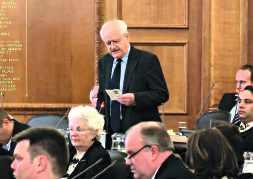
residents. He worked closely with community leaders across Finchley, Golders Green and Hendon, and was a regular presence at local events and commemorations.
Former Chipping Barnet MP Theresa Villiers said: “This is a very sad loss. John Marshall gave immense service to Barnet, first as MEP, then MP, then ward councillor. I had the honour to know him for around 25 years and I had huge respect for him.
He really cared about the people he represented. Right up to his final days, he was following the ups-and-downs of politics. He was a good friend and I will miss him.”
Former Finchley and Golders Green MP Mike Freer added: “John Marshall was the archetypal public servant. He was part of the community he served and found strength in working for local constituents. He was a wellknown supporter and advocate for the Jewish community and Israel. He was an exemplary MP and will be remembered fondly.”
After leaving Westminster, Marshall returned to public life locally, serving as a Barnet councillor from 1998 to 2022, including a term as Mayor in 2008-09 and senior cabinet posts overseeing significant investment in the borough’s schools and libraries.
He maintained strong links with Barnet Conservatives and continued to support political and community engagement in recent years.
Jewish organisations have reacted with satisfaction to the announcement that the 310 bus route between Golders Green and Stamford Hill is to be made permanent after reaching the end of its trial period.

The single-decker bus route, which goes between two of the largest Jewish communities in North West London, was launched last September.
Andrew Gilbert, Vice President of the Board of Deputies and former co-chair of the London Jewish Forum, said he was “delighted at the decision.
“Importantly, that has also come with the announcement that the route will run until a later time and will extend further into Stamford Hill –both key asks which were made during the route’s consultation stage”.
Amanda Bowman, current co-chair of the London Jewish Forum, said that the LJF “welcomes TfL’s decision to keep the 310 bus route, which is clearly valued by our community”.
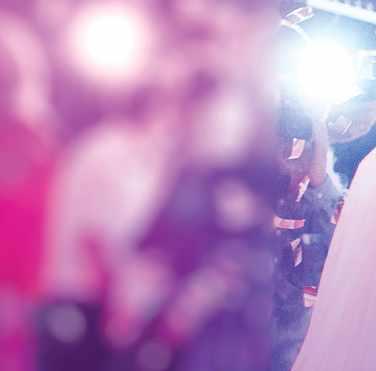


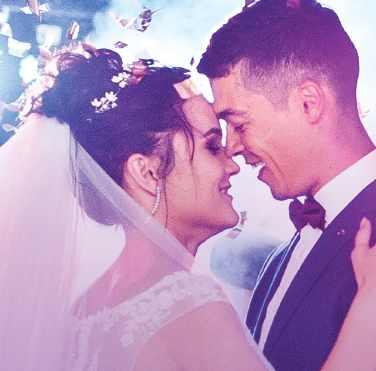










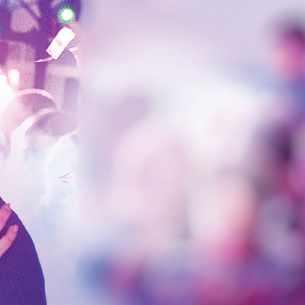











with Palestine /
The story of the Gaza conflict is too often shaped by those least interested in ending it: armed groups, polarising politicians and activists rewarded for outrage instead of nuance, writes Annabel Sinclair.
Amid the grief and fear of the past two years, many assume Palestinians who advocate coexistence with Israelis are rare – isolated voices or, worse, traitors. War has only hardened the binary: for or against, resistance or surrender, survival or silence.
But away from the noise, a quieter movement persists. Palestinians who have lived through trauma, authoritarianism and exile reject a future dictated by extremists, arguing the real betrayal is ceding the next generation to hate.
Jewish News spoke with three such voices working with Realign for Palestine – men who have risked reputations, safety and community to say the conflict must end differently. Their experiences vary, but their message is identical: Palestinians and Israelis are here to stay – and must build a future where both can live. Here are their stories.
• Jaser Abu Mousa Civil engineer and Yale Peace Fellow
Before the war, Jaser Abu Maser had what he calls “an almost perfect life” in Gaza City: secure income, loving marriage and children with “big dreams”. His eldest son had just graduated school with 98.9 per cent average and was set to study mechanical engineering in Germany. His wife, Heba, a novelist and university lecturer, had published her first book. “I was proud every day,” he says. “We were building something.”
He saw warning signs long before 7 October. “Everything indicated something was coming,” he says. “But none of us imagined that scale.”
His family paid the price. His wife and two sons died in an airstrike in the early months of the war. His surviving children were badly injured. In July, another strike killed his mother, sister and her children. “Across two years, my whole world disappeared,” he says quietly.
Evacuated to Abu Dhabi for medical care, he tried to rebuild, but without residency rights, employers rejected him. A friend urged him to

apply for a peace fellowship at Yale. He now lives in Massachusetts with his surviving children.
There, he had his first conversations with Israelis. On a hiking trail in Connecticut, the revelation came. “We talked like human beings,” he says. “They shared their hidden fears. I shared mine. We have the same fear for our children.”
That discovery reshaped his mission. He now works with Israeli academics to design a reconstruction plan rooted in what Gazans actually want – safety, schools, work and dignity.
A peace plan ignoring ordinary Palestinians will fail, he says: “Everyone talks about Gaza’s future except Gazans. If people cannot shape their own lives, extremists fill the vacuum.”
• Adnan Jaber Lecturer at UCLA and Open AI Forum member
Adnan Jaber grew up in East Jerusalem seeing Israelis daily but never speaking to them. “There were walls in our minds,” he says. “Sharing space is not sharing a life.”
He dreamt of joining the region’s thriving tech sector, but job interviews with Jewish managers were tense and stilted. “They were afraid, I was afraid – fear controlled the room.”
Everything changed when he joined Tech2Peace – a programme mixing Palestinians and Israelis for AI training and deep dialogue. “I only went because I needed work,” he smiles. “But those two weeks in the desert changed my life. In dialogue we practised empathetic listening, we learnt to listen rather than respond.”
Based now in Los Angeles, he taught ‘Design Entrepreneurship for Peace andImpact’ at UCLA – teaching students to build tech solutions while developing the skills of dialogue. “When Israelis and Palestinians build together in tech, they build a tiny piece of a shared future,” he says.
“Every meaningful peace begins with listening to the people living the conflict,” he says. “Now we can listen at scale.”
• Hamza Abu Howidy
Writer, activist, Realign for Palestine contributor Hamza Abu Howidy grew up secular in Gaza City, but attended a Hamas-run school where ideology was part of every subject. He remembers the group’s violent 2007 takeover. “I was a child watching a militia throw people from rooftops,” he says. “It shapes you.”
After joining the ‘We Want to Live’ protests calling for elections and a Palestinian-led government free from militias, he was arrested twice and fled after his release. Now in Germany awaiting asylum, he lives in a refugee shelter – safe, but not settled.
He writes about Gaza’s realities for Newsweek and USA Today, challenging both Israel’s policies and internal repression. As a contributor to Realign for Palestine, he pushes for Palestinian agency in rebuilding Gaza.
“Hundreds of Palestinians have been killed by Hamas since the war. People don’t hear that.
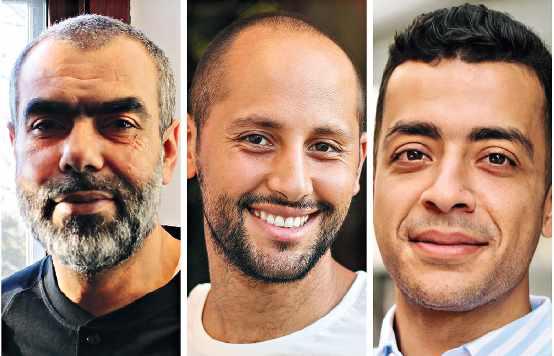
The biggest enemy of Hamas is inside Gaza.”
He rejects the idea coexistence voices are fringe. “There are many like me in Gaza. They just can’t speak. I speak for them until they can.”
He is clear-eyed about coexistence: “Israelis aren’t going anywhere. We’re not going anywhere. We can fight forever or start to live.”
His hope now is not for exile but return: “I want to rebuild Gaza after Hamas – a Gaza where
people can breathe, speak, and dream. I’m angry. But I want my anger to build – not destroy.” Jaser, Adnan and Hamza’s message to Israelis, to Palestinians, and to the world is unified and urgent: Peace is not made by governments first. It is made by people brave enough to say the future can be different. They are building that future now – in classrooms, in policy forums, and in exile.
Bespoke and contract framing
Puzzle & tapestr y framing
Silk/oil stretching & silk cushioning
Custom mirrors
All frame repairs under taken

WE ARE NOW THE EXCLUSIVE AGENTS FOR ARTWORK BY THE RENOWNED ARTIST VICTORIA SHASHA. SOME ORIGINAL ARTWORKS ON DISPLAY. PLEASE CONTACT US FOR FURTHER INFORMATION.
Let’s chat framing: Unit 26 Theydon Rd, London E5 9NA 020 8109 7817 • 07535 666791
northlondonframing com
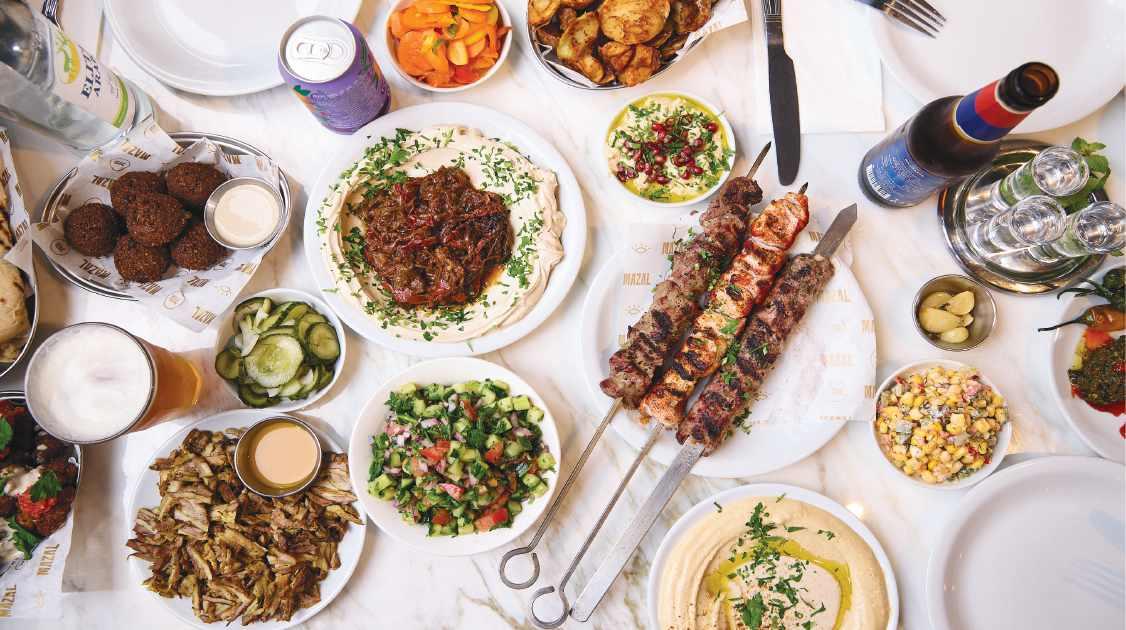
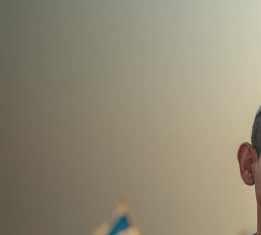



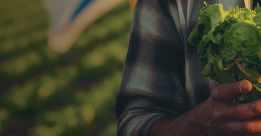













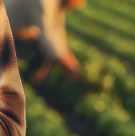
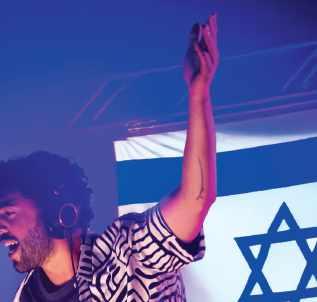
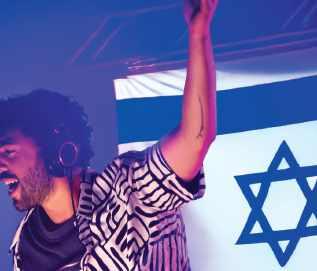






Israel is strong and growing Now, more than ever, is the time to make Aliyah




by Lee Harpin
There are several ways to analyse how New York’s Jewish voters cast their ballots in last week’s mayoral election, if the findings of a poll are accurate.
A CNN exit poll, conducted as voting concluded, suggested 34-year-old self-identified democratic socialist and proud Muslim victor Zohran Mamdani garnered support from roughly one in three Jewish voters in the city.
Mamdani’s opponents, former governor Andrew Cuomo and Curtis Sliwa, together secured 66 percent of the Jewish vote in what was one of the highest-profile mayoral races New York has seen in years.
The most obvious takeaway from these statistics is that in a traditionally pro-Democratic and progressive city with a similarly progressive Jewish community, a majority of New York’s Jews did not back the winning candidate.
As the Democratic nominee, Mamdani faced relentless scrutiny over his pro-Palestinian views during the campaign, as well as frequent allegations of antisemitism and, from some quarters, claims of sympathy for Hamas and other militant groups.
This contributed to a notable decline in support from a Jewish community that has historically given up to 80 percent of its votes to less controversial Democratic candidates in past national elections.
So while a third of Jewish voters backed Mamdani, community neighbourhoods across the city overwhelmingly favoured Cuomo, according to the poll based on a scientific sample of 710 Jewish voters.
Cuomo, Mamdani’s chief rival, actively courted the endorsement of major mainstream Jewish organisations, at one point labelling Mamdani a “terrorist sympathiser” and aligning himself firmly with the Israeli government’s response to the war in Gaza.
In the Hasidic area of Williamsburg, up to 90 percent of voters chose Cuomo – an island of support amid otherwise Mamdani-leaning stretches of western Queens and Brooklyn.
Other heavily Jewish neighbourhoods including Crown Heights, Borough Park and Midwood also voted decisively for Cuomo, with one Borough Park precinct reporting more than 96 percent support for him. However, it would clearly be a mistake to claim that a candidate who secured 30 percent of the Jewish vote had “lost” the community, especially after enduring a barrage of attacks from his opponents.
For comparison, in the UK, Jeremy Corbyn, who like many on the left has expressed admiration for Mamdani’s success, received the support of only around 11 percent of Jews as Labour leader in the 2017 general election, according to the Institute for Jewish Policy Research.
Many of those votes were thought to be motivated by loyalty to local MPs or the party, rather than support for Corbyn personally. By the 2019 election, that figure had fallen to just six percent.
In New York – a city of 1.3m Jews among a general population of 8.5m – it is therefore reasonable, at least according to the exit poll, to conclude a significant segment of the community does not view Mamdani as negatively as Corbyn was seen by British Jews.
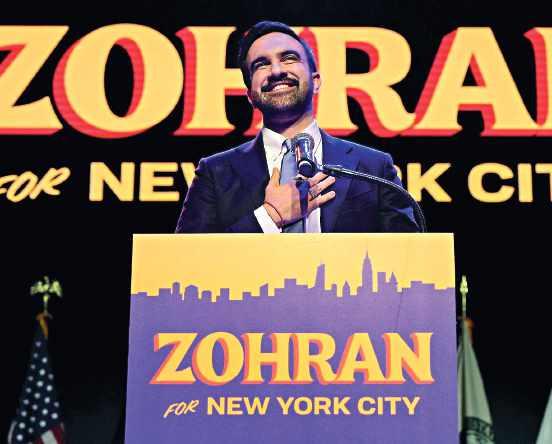
Lila Corwin Berman, a New York University professor of Jewish history, observed: “Mamdani’s campaign was bolstered by a grassroots push, with Jewish activists canvassing neighbourhoods, championing his anti-antisemitism platform for New York and criticising Netanyahu’s war in Gaza and the ongoing occupation of the West Bank.”
In his victory speech, Mamdani directly addressed concerns about rising antisemitism, promising: “We will build a City Hall that stands steadfast alongside Jewish New Yorkers and does not waver in the fight against the scourge of antisemitism.”
Organisations that have embraced antiZionism, such as Jews For Racial and Economic Justice, unsurprisingly expressed full support for Mamdani. But his breakthrough was in winning over significant liberal Zionist support.
Notably, Brad Lander, the outgoing city comptroller and highest-ranking Jewish o cial in New York, endorsed Mamdani ahead of the Democratic primary.
Lander has taken a nuanced stance on the conflict in Gaza – critical of Netanyahu but supporting Israel’s right to self-defence, a common perspective among centrist Democrats.
Some commentators argue Lander helped moderate Mamdani’s more extreme positions on Israel, while also prompting a reassessment of his own previously uncritical support for the Jewish state.
Other prominent liberal Zionists, including Manhattan’s long-serving Jewish congressman Jerrold Nadler, also backed Mamdani.
Just days before the election, J-Street founder Victor Kovner publicly endorsed Mamdani, stating he was “ready to handle the challenges of the city – and build lasting partnerships with its Jewish community”.
In the end, the unlikely coalition between anti-Zionist and liberal Zionist Jews held firm, even after a well-funded anti-Mamdani cam-
paign threw everything it could at him, including circulating a 2023 video in which Mamdani told the Democratic Socialists of America: “We have to make clear that when the boot of the NYPD is on your neck, it’s been laced by the IDF.”
Unsurprisingly, Donald Trump’s last-minute claim Jews would be “stupid” to back a “selfconfessed Jew hater” failed to convince.
Unlike Corbyn, who sidestepped allegations of antisemitism, Mamdani did not shy away from challenges to his views. Pressed on whether he supports Israel’s right to exist, he consistently responded: “I’m not comfortable supporting any state that has a hierarchy of citizenship on the basis of religion or anything else. I think that, as in this country, equality should be enshrined in every country in the world.”
Perhaps the most significant takeaway from the election is that, in New York City at least, it is possible to criticise Israeli government policy and challenge traditional Zionist ideology and still secure a significant share of the Jewish vote.
This outcome is likely to frustrate Corbyn supporters in the UK, who were unable to achieve similar success, just as much as it will unsettle mainstream communal organisations that continue to act as if they represent a unified Jewish voice.
Protecting and securing the Jewish community in the UK against antisemitism is what we do. CST will leave no stone unturned in the fight against those who wish to do us harm.


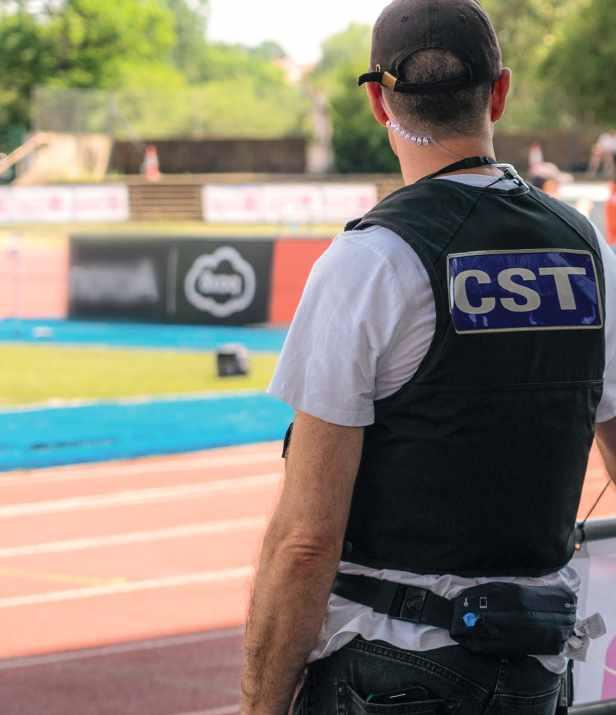
The community will gather at the Cenotaph in Whitehall this Sunday for the annual AJEX Remembrance Parade and Ceremony, writes Michelle Rosenberg.
This year’s event coincides with several major anniversaries – 80 years since the end of the Second World War, 80 years since the liberation of Bergen-Belsen and 85 years since the Battle of Britain – and organisers are calling for record attendance.
Veterans, families, Jewish schools, JLGB, youth movements and cadet groups will march together in a show of remembrance and pride, as crowds line Whitehall in support.
The parade will be reviewed by Brig Melissa Emmett, with Jon Tyler and Lt Col Adam Shindler serving as parade commanders.
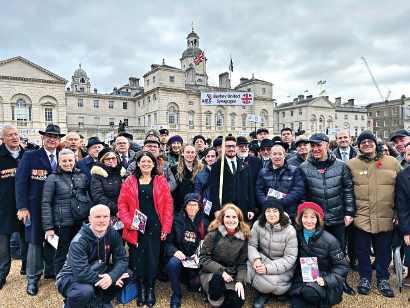
standing alongside Holocaust survivors and veterans, carrying our legacy forward, and making sure the memory of those who served is never forgotten.”
AJEX national chair Dan Fox added: “This is the most important Jewish external event of the year. Every marcher, every spectator plays a part in showing the whole country that we remember, we are proud and we will never allow the legacy of Jewish service to fade.
“Whether you march or watch from the pavement, your presence matters.”
The new head of Israel’s Ministry of Tourism has thanked the UK Jewish community for standing by the country’s side over the past two years, saying the country “does not take it for granted”.
Speaking to Jewish News following the opening of the Israel stand at the annual World Travel Market at London’s ExCel venue last week, director-general Michael Izhakov said: “It’s very important to show our gratitude for the fact that they travelled in such large numbers over the last two years. We don’t take it for granted.”
Izhakov said his aim is to encourage the “building of new hotels and new homes”, with incentives for investors including 20 percent grants for eligible projects.
The biggest challenge, he added, is “assuring tourists that Israel is safe”, noting the “huge gap between the true reality in Israel and the way that it’s covered in the newspapers”.
Organisers noted the event was taking place at a time of rising antisemitism, and participants are expected to demonstrate solidarity and resilience as they honour the contribution of Jewish men and women who served in Britain’s armed forces alongside Holocaust survivors and veterans.
not only about remembering the past, but about standing strong together in the present.
AJEX chief executive Fiona Palmer said: “The AJEX parade is
“In the face of antisemitism, this is our chance to show unity, pride and resilience as a Jewish community, marching together,
Spectators are encouraged to scan QR codes on the day to download the Order of Ceremony, share photos on social media using #AJEXParade2025, and wear family medals to ensure the memory of service and sacrifice is visible.
Attendees are advised to allow time for security checks, with the event scheduled to begin at 2pm.
He noted: “The fact is not one tourist was hurt during the war”, adding: “But unfortunately we don’t have enough budget to campaign against antisemitism.”
Joined by the tourism ministry UK director Michael Ben Baruch and Israel Hotel Association president Eli Cohen and chief executive Sivan Detooker, Izhakov thanked the leaders for their continued support amid discussions on future hopes for the tourism sector.
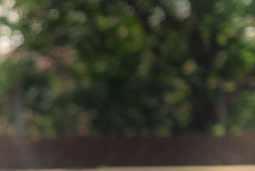
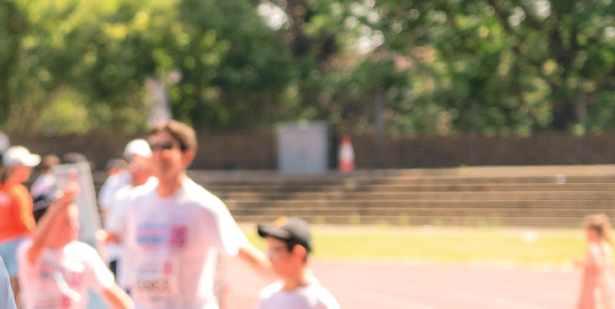


‘Windermere’ school marks big anniversary
A school on the site where hundreds of young Holocaust survivors began new lives in the Lake District has marked its 60th anniversary with an evening of tributes, music and reflection hosted by broadcaster and barrister Rob Rinder, whose grandfather was among the 300 “Windermere Children” brought to Britain after the Second World War.
The Lakes School in Windermere opened in 1965 on the grounds of the former Calgarth Estate and the anniversary event brought together alumni, staff, students and members of the local community to honour the school’s legacy and its unique connection to the survivors who once called the site home.
Alumni singer Marcella Nield opened the evening, followed by a moving address from ‘45 Aid Society chair Angie Cohen, who thanked the people of Windermere for welcoming the survivors eight decades ago.
Head of humanities Ken Pickering said the school’s recent recognition as a UCL Holocaust Beacon School reinforced its “ongoing commitment to education and historical understanding”. A standing ovation was given to Arek Hersh MBE, one of the Windermere Children and a longtime friend of the school, who has shared his testimony with generations of pupils.
Former headteacher Arthur Capstick and Cumbria lord lieutenent Alex Scott reflected on six decades of service to local families before joining current head boy Matthew and head girl Lucy to seal a student time capsule to be opened on the school’s 100th anniversary in 2065.
A specially commissioned short film, Across
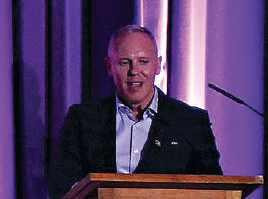
a Lake Below the Hill, by award-winning director and alumnus Michael Cumming, captured the school’s history and spirit through the voices of past and present students.
The evening also featured a discussion about the area titled Lakes Legacies Live, with Cumming, makeup artist Natalie Vella, international sports marketer Dan French and student leaders Matthew and Lucy sharing insights on the impact of their education and the school’s enduring values.
Luke Brown, who organised the event, said it was “incredible to see generations of students, alumni, and the wider community come together to celebrate the school’s history and achievements”.
Headteacher Sharon Rainey added: “This milestone reminded us of the remarkable journey of our school and the generations who have shaped it. We are proud of our past and excited for the future.”
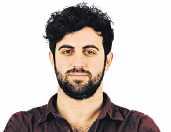
JOSH GLANCY ASSOCIATE EDITOR, THE SUNDAY TIMES
You can see the blood from space. That’s how bad the slaughter has now become in Sudan. In one maternity hospital, around 500 people – nurses as well as patients – were executed recently, according to the World Health Organization. Newborns have been massacred. Some quarter of a million civilians are still trapped in El-Fasher, which has now fallen after an 18 months siege. Children are starving. Children have been raped. The world has done next to nothing.
In the 31-month war between the Sudanese Armed Forces and the Rapid Support Forces (RSF), more than 11 million people have been displaced; four million have fled the country as refugees. The UN estimates 30 million are in need of humanitarian aid. Tens of thousands of civilians have died, though exact numbers are hard to pin down.
The United Arab Emirates is widely thought to be supplying weapons to the RSF, an Arab militia and successor to the Janjaweed, who perpetrated a genocide in Darfur 20 years ago. It denies the charge.
The current war in Sudan began in April 2023, a few months before October 7. To note that it has received significantly less coverage than events in Gaza doesn’t even begin to capture the scale of global indi erence.
In the nine months following October 7, according to a study by the London School of Economics, mainstream outlets in Britain published 18 times as many stories about Gaza than about Sudan.
Why is the disparity quite so vast? The answer to this brings us to a deeper question: why is the world quite so obsessed with Israel and Palestine?
First, let me make something clear. My intention here is not to instrumentalise appalling events in Sudan merely to score a cheap hasbara point on behalf of Israel. I want people to understand more about the way we cover and don’t cover these conflicts, because I think the answers are useful and revealing. Why the disparity? The easy answer is antisemitism. The world is disturbingly obsessed with the Jewish state and its crimes. The world finds the Jews to be uniquely evil. It is fed up with feeling guilty about the Holocaust and is interested in the Palestinian cause primarily because it gives people permission to hate Jews again, an atavistic cultural reflex that defies permanent suppression.
Is that an answer? Yes. It was ever thus. But there are many other answers. Antisemitism alone doesn’t su ce.
Other factors include the nature and limitations of modern media. Few British media outlets regularly report on Africa at all nowadays, as foreign reporting budgets have cratered over the past 15 years. Mainly this contraction is due to shrinking advertising revenue, though
I think Britain’s growing introversion as a country has also played a role.
The sad truth is that reader interest in African stories is very low; whereas in Israel and Gaza, it is high. Data analysis allows media outlets to count these views and clicks very carefully – and take them into account when deciding whether to commission expensive foreign assignments.
Both Sudan and Gaza are seriously dangerous places to report from (and of course international media has been mostly banned from the latter), but as Matti Friedman noted in his famous 2014 essay on reporting in the Middle East, Israel is an easy and mostly safe place to cover – and to criticise.
So much for the media. The deeper, more depressing reality is that most people in Britain or Ireland or America just don’t hugely care about what happens in Sudan, much as they didn’t hugely care about Ethiopia’s Tigray war in 2020 or the ongoing Yemeni civil, both of which have claimed as many or likely far more lives than the recent conflict in Gaza.
Partly this is because these other conflicts seem distant and awareness levels are extremely low. Despite Britain’s imperial legacy in Sudan, few of us could locate the country on a map. Its history is almost blank to us.
In Sudan, there is no clear complicity from the British or indeed American government, which coordinate deeply with Israel on security and sell it weapons. Nor is there quite the same gaping disparity in power and weaponry that exists between the IDF and Hamas. If you dislike your government and like an underdog, the conflict in Sudan has little to o er you.
None of the people killing each other in Sudan are white, which is also an essential point. I once asked the Channel 4 newsreader John Snow, a critic of Israel, why the Middle Eastern conflict interested him so particularly. His answer was revealing. He said: “One of the reasons there is an obsession is because people like us are engaged in this. By that I mean, I’m almost making a racial observation– not about Judaism, but about Europeans and Americans – white people, in fact. And the conflict feels horribly like our own conflicts from our own colonial pasts.”
‘People like us’.
British audiences have very little emotional or moral investment in Sudan, but Israel and Palestine is another matter entirely. The Arab-Jewish war over Palestine has been going on for more than a century– really since it became a British mandate. And the story of Israel is woven far deeper into the foundations of Christian civilisation: Bethlehem, Nazareth, Jerusalem... these sacred names exist in the
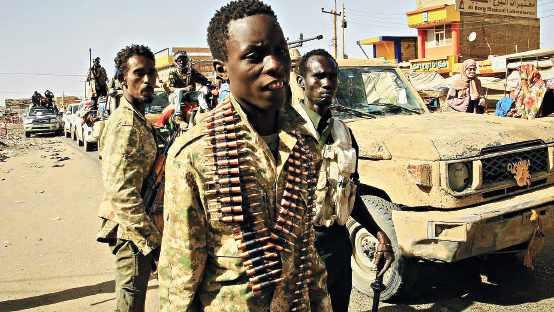
substrate of our culture. “The Holy Land does not just haunt our imaginings, it shapes them,” wrote the historian Tom Holland in a Christmas essay for The Sunday Times back in 2023. “That we hold the ideals, the assumptions and the prejudices that we do is due in huge part to stories that originated there.”
Many British Muslims also invest huge amounts of emotion, pride and moral fervour into the Palestinian cause. This outrage is sincere and derives partly from religious and ethnic solidarity, and partly from the holy significance of Al-Quds. But it also reflects a sense of humiliation, of anger and frustration at their own government being an ally of Israel, and a wider desire for greater political recognition and influence. This Gaza war has been an awakening for British Muslims that will reverberate far beyond the issue of Palestine.
In their focus on Palestine, British Muslims often find common cause with the left and far left, for whom this conflict has long been a moral playground– not so much a real country as a screen upon which narratives of colonialism and white European fallibility can be projected, and emotional satisfaction reflected back.
Throw in the Jewish connection to Israel and you have all the necessary ingredients for the banquet of anguished discourse that has played out on social media over the past two years, in which algorithms have boosted content from Gaza because it provokes such fierce engagement. The constant presence of appalling images on smartphone screens has been a central animating force behind the scale and ferocity of the Gaza protest movement. For Sudan, not so much.
Given what’s happening in El-Fasher, leftist protesters would in theory have perfectly good
cause to gather in their thousands outside the UAE embassy in London and Paris, to protest its alleged involvement in Sudan and demand Britain stop selling weapons to the Gulf state. Millions could use their platforms to ramp up demands that more is done in Sudan. But for all the reasons stated above, they won’t.
These are glaring double standards, but many supporters of Israel are also too quick to use them as a get-out-jail-free card. Just because people are obsessed with Israel’s wrongdoings, this doesn’t somehow validate all that has happened. Just because they hurl exaggerated calumnies about widespread famine doesn’t mean it was right to shut o aid into Gaza and exacerbate acute hunger issues.
It’s not enough to just say “what about Sudan?” – the destructive intensity of the Gaza war was genuinely terrifying. Being less brutal than the Janjaweed is too low a bar.
As ever with the Middle East, the challenge here is to hold many truths in your head at once and avoid easy answers. It is certainly the case that prejudice, proximity, activist narcissism and long history all serve to motivate an obsessional focus on Israel and Palestine. This focus warps the conflict itself, as Hamas often acts in order to weaponise global outrage. Journalistic and indeed epistemic standards have dissolved in the emotional cauldron of Gaza.
The sad but undeniable truth is that while Israel and Palestine are a global obsession, few in Britain will ever care about Sudan or other conflicts in Africa and the Middle East. This is a source of frustration, but it is also an immovable reality. It is the nature of the bizarre global battlefield that this Jewish state finds itself on. And as the old footballing cliche goes, you can only beat what’s in front of you.
The challenge is to somehow to acknowledge this inequality and what it represents, but also not use it as an excuse.
Sudan is a tragedy on its own terms, not an appendage of the meta-war around Gaza.
The Israel-Palestine conflict is unique situation upon which much of the world projects its own emotions and frustrations.
This is unlikely to change, so instead it must be navigated.
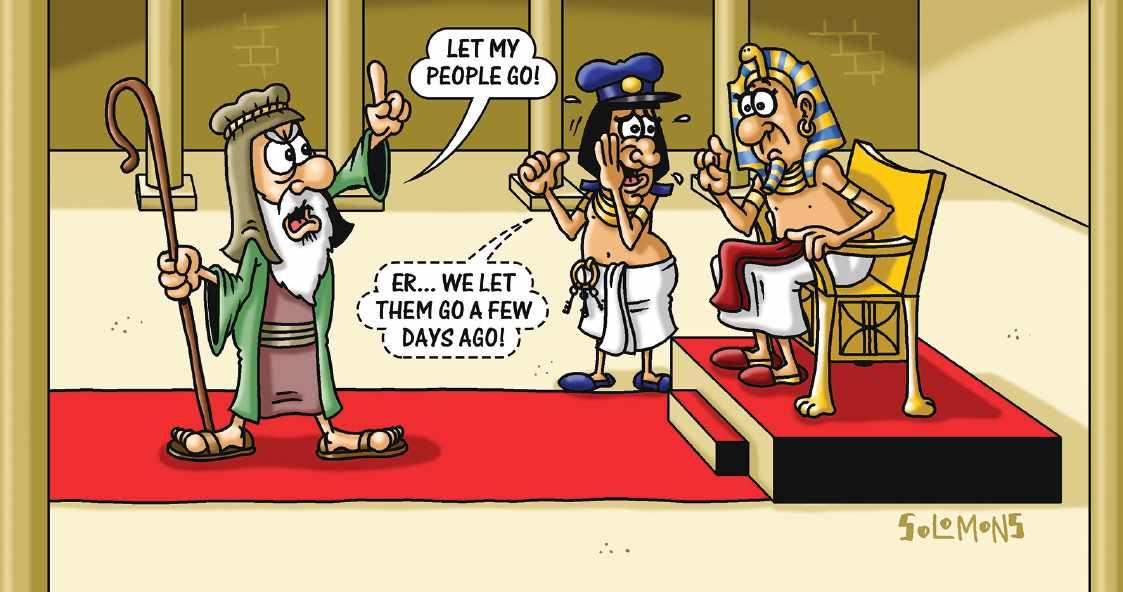
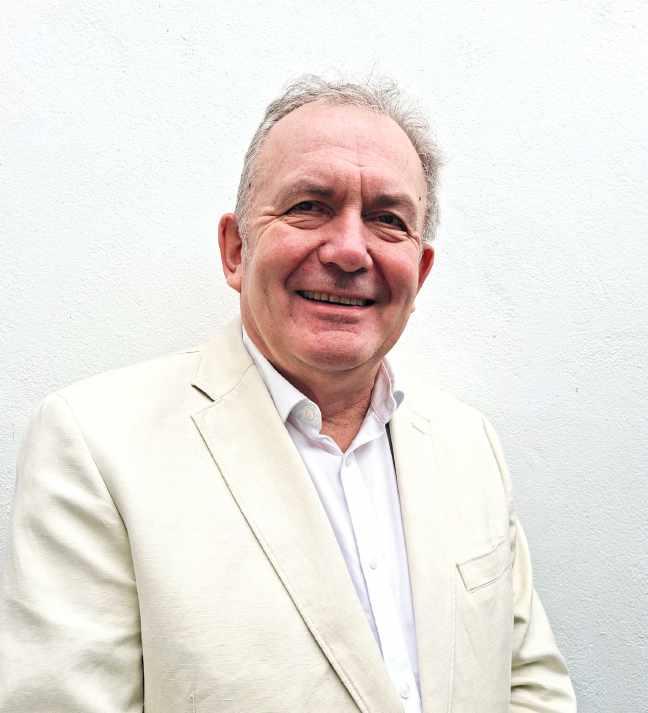

DANIEL TAUB CHAIR, RABBI SACKS LEGACY IN ISRAEL
On the fifth yahrzeit of the passing of Rabbi Jonathan Sacks, it is appropriate to recall his own words on the mitzvah of Yizkor, remembering the dead: “There is a specifically Jewish way of remembering,” he wrote. “When the word yizkor is mentioned in the Torah, it refers not to the past, but to the present and to renewal.”
With this in mind, I have no doubt that Rabbi Sacks would be deeply moved by the extent to which his teachings have found new and eager receptiveness since his passing. He would be particularly moved to see his impact within Israel, where, he would often tell me, he felt that there was the potential to impact not only on a community, as in the diaspora, but on an entire society.
In the years since his passing, Rabbi Sacks’ books, now beautifully translated into Hebrew, have become Israel’s bestselling
books on Jewish thought. Courses based on the teachings of Rabbi Sacks are currently being taught to over 70,000 students in Israeli schools, both religious and secular, as well as in nearly 40 mechinot or leadership academies. At Bar-Ilan University, students are pursuing master’s and doctoral degrees in aspects of Rabbi Sacks’ thought, while a new online course makes his teachings available to students throughout Israel.
At the adult level, hundreds of thousands are engaging with Rabbi Sacks’ teachings through social media, as well as in-person study circles ranging from national religious thought leaders to Tel Aviv artists. The Hebrew language publication of his High Holiday prayer books was marked with a Yishai Rebo concert attended by over 8,000 people.
How is one to explain the extraordinary range and depth of his impact on Israeli society? The dedication of the small but talented team that coordinates the Rabbi Sacks Legacy programmes clearly plays a part. But a deeper reason may be that in these troubled days many Israelis are asking precisely the type of question that Rabbi Sacks tried to answer.
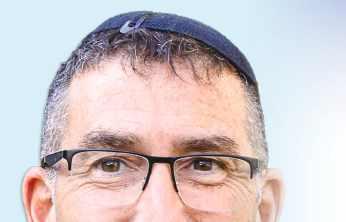



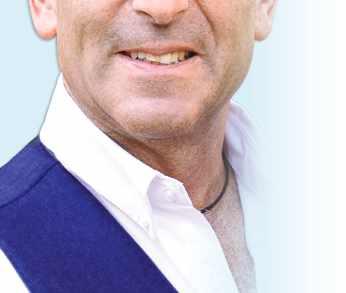

His message of hope, dignity, and the need for positive Jewish identity and sense of mission has an acute resonance at this time.
So too, does the image of a Jewish leader who could walk proudly with kings and princes have particular resonance at a time when the global standing of Jews is under attack.
At a deeper level, though, it seems that Israelis may be turning to Rabbi Sacks because they have themselves come to recognise a weakness within Israeli society that he was early to identify and because they intuit that his teachings may help to redress it.
In his final book, Morality, Rabbi Sacks made the argument that Western societies have come to rely almost entirely on the State and on the Market, that is, on the allocation of wealth and power. In doing so, he insisted, they have neglected the need to nurture community and a commitment to the shared good.
In Morality Rabbi Sacks doesn’t refer to Israel, but in fact the first time he made this argument was a decade earlier, in his book Future Tense, and then it was raised specifically in relation to Israel. He argued that it was understandable that David Ben Gurion
and the founders of Israel, in their urgency to establish the State, had emphasised the policy of mamlachtiut, the centrality of the State. But this policy, he suggested, had gone too far.
The result he argued was that “though Israel managed remarkably the transition from powerlessness to power, it did so at the cost of weakening the very institutions that had been the source of Jewish strength in the past.” These were not the state institutions but those communal and society associations which embody the principle ‘All Israel are responsible for one another.’
Many Israelis have had a growing sense of the importance of nurturing such social and civil assets for some time, but the need came into sharp focus on 7 October. On that terrible day, the State institutions tragically failed, and it was the communal associations and civil society which stepped up to the challenge with a deep sense of shared responsibility.
With a new-found awareness of the importance of social capital, Israelis are finding a new receptiveness to lessons from the Jewish diaspora, and among them the compelling voice of Rabbi Sacks.


Can you imagine what it’s like to attend the shul where you’ve been a regular worshipper for five decades and have to be accompanied into the building by a police protection o cer because of personal threats? That was my awful experience last Shabbat, because of a campaign of vilification being waged against me by members of my own community.
At the last meeting of Herts County Council, which I chair, there was a motion simply requesting the Pensions Committee to review its “Responsible Investment Policy”, which the council’s investment managers do as a matter of course. It made no reference to Israel or any other matter. The motion narrowly passed. It was an expedient way to relegate an unpleasant BDS petition, which had been received at the meeting,
into obscurity. Herts County Council has issued an explicit statement that it does not endorse the BDS movement.
As chairman of the meeting, I didn’t cast a vote in order to remain impartial in accordance with convention. Like the speaker in Westminster, all chairs and mayors are apolitical during their tenure. My adherence to the longstanding convention of neutrality seems to have infuriated some of my fellow Jews, and I have been subjected to a torrent of abuse which, even after 50 years in public life, has shocked me to the core.
I served as treasurer of the Board of Deputies for six years, and, as an active Zionist, I have a home in Israel which I frequently visit. I chair the British Friends of Neve Shalom, which helps raise funds to improve life in Israel for all its citizens. It’s unimaginably hurtful even to suggest I would seek to harm my beloved Israel.
My family and I have had physical threats. Even my teenage grandson has received unpleasant social media messages. A shadowy Jewish pressure group has sent
me hundreds of AI-generated emails, all slightly different but all totally misrepresenting my role and blaming me for not voting at the meeting with no understanding of the way local government functions. There’s no room for nuance on social media, and the ignorant “keyboard warriors” are very happy to pillory me without understanding the position.
I have been criticised for not permitting certain councillors at the meeting to speak for longer than their allotted time, with no reference to the fact that I have an obligation to adhere to strict time limits refereed by a red light. There have been a plethora of lies and misrepresentations which some members of our community have blindly accepted and just followed the herd.
My critics suggest I should have broken with convention and cast a vote at the meeting. So, yes, I could have altered the vote, but I felt to have done so would have been very counter-productive and added fuel to the fire and enabled the petitioners to play the victim and left me and the council open to the charge that the votes
had been manipulated by a Jew to no longer reflect the views of members.
My predecessor as chairman of Hertfordshire, from a different political party, has confirmed to me he would have dealt with the motion before last month’s meeting in the same way. I’m grateful to the many people who have contacted me with their support and understanding.
Several rabbis have publicly backed me, in particular, the former distinguished rabbi of Bushey Synagogue, who wrote to me from Israel telling me: “I was impressed by the way you dealt with the matter.”
I respect that verdict more than the views of some prejudiced Jews who weren’t prepared to understand the correct position.
As Jews in difficult times, we have to fight many battles, and it saddens me to see some members of our community wanting to pick a fight with one of their own.
Ever wondered why there’s a lack of decent folk prepared to enter into public life these days? My experience over the past few days provides the answer.




can supply any certificated , IGI, HRD diamonds






GARY COHEN WRITER & COMMENTATOR
More than 11 years – or 4,118 days, to be precise. That’s how long Simcha and Leah Goldin had to wait for their son’s remains to be returned to them for proper burial.
Lt Hadar Goldin was killed in action on 1 August 2014, during Operation Protective Edge, during what was supposed to be a 72-hour humanitarian ceasefire. His Givati reconnaissance team was ambushed by Hamas from an underground tunnel. Three soldiers died. Hadar Goldin’s body was taken by the terrorists.
For more than 11 years, his parents and siblings Ayelet, Tzur and Hemi lived in limbo. Israel knew where he was and who held him but could not, or would not, bring him home.
Then, on 7 October 2023, Hamas and other terror groups violently dragged another 251 people into Gaza, from their homes, their cars, the fields and a music festival.
People talk about “the hostages” as if the
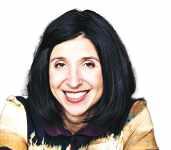
story began that day. But four Israelis had already been held in Gaza by Hamas for almost a decade: Lt Goldin, Givati Brigade, killed in 2014 and abducted in Rafah; Sgt. Oron Shaul, Golani Brigade, killed in 2014 in Shuja’iyya, his body seized by Hamas; Avera Mengistu, an Ethiopian-Israeli civilian with mental illness who crossed the fence into Gaza in 2014 and never came back; Hisham al-Sayed, a Bedouin Israeli, also living with mental illness, who wandered into Gaza in 2015 and was taken.
For years, these four were a footnote. A “complex issue”. Something that could wait until after the next round with Hamas, the next coalition crisis, the next speech about “quiet”.
A year before the 7 October massacre, at the end of his tether, furious and frustrated at the failure to return his son and the other three hostages, Simcha Goldin wrote with devastating clarity: “Those who abandon the dead will abandon the wounded and the living.”
One may look at the past two years since 7 October and ponder that statement.
The Goldin family did everything one would expect and far more. They fought with everything they had. They protested. For 286
Fridays in a row, Simcha and Leah Goldin and their supporters held weekly rallies at the Black Arrow Memorial to raise public awareness and pressure the Israeli government. They chose the site on the Gaza border, a memorial to the 101st paratroop battalion of the 1950s, as it honours the Israeli military ethos of leaving no one behind, be they living or dead.
They travelled the world, lobbied foreign leaders, took on the UN and pushed for international resolutions, insisting that any form of Gaza reconstruction or aid be tied to the return of their son and the other three hostages.
They stood incredulous and horrified as hundreds of millions of dollars in Qatari cash were given to Hamas, along with work permits for Gazans to enter Israel. They felt betrayed, rejected and ignored by their own government.
At a Knesset State Control Committee hearing in April 2017, Leah Goldin sat before coalition MKs to demand answers as to why her son’s body was still in Gaza. She attacked the government, saying: “You have turned bereaved families into enemies of the state.”
When Likud MK Miki Zohar interrupted,
she lost patience and cut him off, “You don’t answer! I wasn’t asking you! I don’t even know your name, you insolent man. Be quiet!” Then, in frustration, she threw a cup of water at him.
Zohar said he interrupted to defend the government and his party leader.
He later claimed he was objecting only to her accusation that the government saw the bereaved families as enemies. Leah didn’t retract it. She doubled down on the accusation.
In the same meeting, David Bitan shamelessly shouted at another bereaved father, Rami Yitzhaki, whose son, staff sergeant Erez Yitzhaki, was killed in Operation Protective Edge in 2014, accusing him of lying about the government’s treatment of bereaved families.
It was a snapshot of something larger, a government so defensive, so addicted to its own narrative, it had lost the basic instinct to empathise and listen to its own people’s pain.
In the wake of 7 October and a war that has lasted two years and more, we have clearly seen history repeating itself.
May Hadar Goldin’s memory be a blessing. May we as a country live up to his sacrifice and to the values he fought and died for.
JOANNE GREENAWAY CEO, LONDON SCHOOL OF JEWISH STUDIES
Iremember as if it were yesterday –the moment 30 years ago when the madrichim on my gap year programme in Israel told us Yitzhak Rabin had been assassinated at a rally in Tel Aviv’s Kikar Malchei Yisrael (Kings of Israel Square). We were unable to process fully the magnitude of the event, but knew we were seeing a moment that would change the trajectory of the history of our people.
The country’s mood changed overnight. We hadn’t appreciated how much hope we had all been holding until it was gone. Our carefree gap year which started against the backdrop of the Oslo Accord, became marred by bus bombings and extremist rhetoric.
We became accustomed to a new disillusioned reality – more cynical, jaded and defensive. Kikar Malchei Yisrael became the focus for national mourning and rousing concert tributes with new music written to capture the moment and was soon renamed Rabin Square to honour our fallen hero.
So much of the last 30 years has been shaped by that tragedy. The path not taken
has slipped further and further from our grasp. A generational divide has emerged between those who experienced hope and those whose education about Israel has had to contend with much more complexity.
And yet, last month, on Hoshana Raba, the day before Simchat Torah in Israel, when we witnessed the miraculous return of all the living hostages and the announcement of a ceasefire, we dared to raise our sights again. Around the world, we were glued as one people to the livestream from Hostages Square.

This time, my eldest daughter on her gap year has been able to experience this historic turning point. And I felt a profound sense of ‘tikkun’, of repair, at this moment with the potential to restore some of what we lost. A new turning point in Israel’s history was again marked in a renamed square of Tel Aviv (from ‘Kikar HaBima’ to ‘Kikar Ha Hatufim’, less than 1km from Rabin Square).
Once again new music was written and performed there. Israel’s public spaces again have carried our history, through so much pain and so much togetherness.
Dr Micah Goodman, Israeli author and academic, has characterised the different phases of Israel’s history since the state was founded as two ‘republics’.
republic is being born, founded by the heroes of 7 October and the survivors of Hamas’ terror tunnels. This republic is more pragmatic and less innocent, as so many of the dreams of both the left and the right have been shattered during this war.
However, it is one in which we already see the word ‘peace’ re-emerging. After 30 years in which it has been missing from public discourse, it is beginning tentatively to make its way into speeches and conversations.
To make this ‘tikkun’ a reality, we must join with the heroes of 7 October and start to build this new republic together, guided by hope rather than fear.
We, the global Jewish people, can also play our part alongside the citizens of Israel. The visions for Israel’s future may be many and varied. The pain we have all experienced will continue to be part of Israel’s story. The risks and uncertainties will not disappear.
A NEW TURNING POINT IN ISRAEL’S HISTORY HAS AGAIN BEEN MARKED
There is that of the secular, socialist Eastern European founding fathers led by David Ben Gurion from 1948, and that of Menachem Begin which was more capitalist, traditional and diverse and which began after the euphoria of 1967 was followed by the disillusion of the 1973 Yom Kippur War.
Now, Goodman suggests, a new Israeli
But we must at last unite around a sense of positivity that we are working towards reclaiming the narrative of hope and the reality of a democratic Israel, that cares for all its citizens and that strives for peace, however long that takes.
May we take the energy of this ‘tikkun’ and the history infused in the squares of Tel Aviv and use it to chart a course for this new Israel.
People supported by Kisharon Langdon are delivering vital training to NHS staff as part of a government backed programme. It ensures every healthcare professional learns how best to support individuals with learning disabilities and autistic people. To date, six members of the charity have undertaken specialist paid training and now travel independently to hospitals and clinics to share their voices directly with doctors, nurses and other professionals. Chaim Dovid, who works at Ellern Mede Clinic, a specialist centre for people with eating disorders, said: “I enjoy my job because staff really listen. They tell me they learn more from me than from books. It makes me feel proud and useful.”
More than 170 young property industry professionals and industry leaders gathered for an inspiring evening of philanthropy at Nobu, hosted by Young Jami and Jewish Care. The event, featuring a conversation between Matthew Watts, founder of Rockbourne and The People Property Place podcast, and Nick Leslau, chairman and chief executive of Prestbury Group, raised £15,000 for mental health services. Committee member Oliver Brecher said: “More than 55% of under25s in our community are now affected by mental illness, distress or trauma.”
Entertainer and educator Emily Ben-Ze’ev from Emily’s Adventures in Wonderland visited SEED in Borehamwood last week for an interactive afternoon with local families focusing on the creation of the world. Among a range of activities, the young children made constellation viewers, rainbow spinners and took part in hands-on bird activities.
As part of their barmitzvah project, two young Yavneh College students spent the day volunteering at the Jewish Care Holocaust Survivors Centre. The experience, run by Jewish Care at Sandringham in Stanmore, is designed for young people to connect, give back to their community, and learn what it means to be a Jewish adult. They met survivor Ivor Perl and received a signed copy of his book. Rafi Cohen said: “I loved volunteering. All the survivors were so lovely and it’s so important to hear their stories. I can’t wait to go back!” Jack Blass added: “I felt honoured. I was moved by the stories I heard and they all felt like family!”
Camp Simcha eighth annual Ladies’ Lunch featured two of the UK’s leading beauty voices, Sarah Jossel, Sunday Times Style columnist, and Deborah Joseph, writer, speaker and award-winning editor. Welcoming almost 300 guests to Finchley United Synagogue, the event, hosted by comedian Mark Maier, raised almost £100,000 to the charity’s vital work helping families with a seriously ill child.
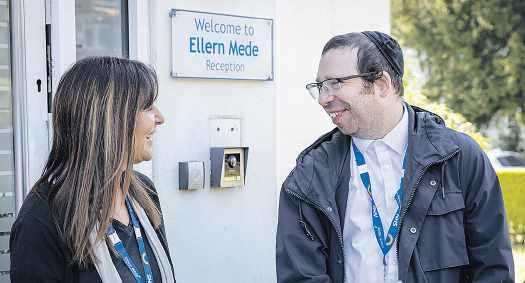
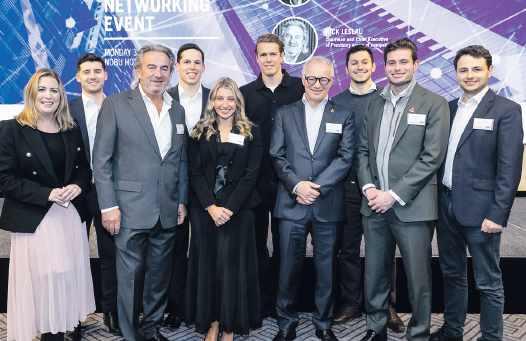


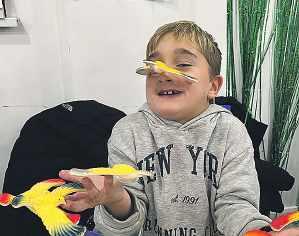

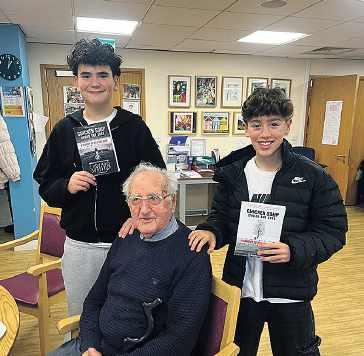



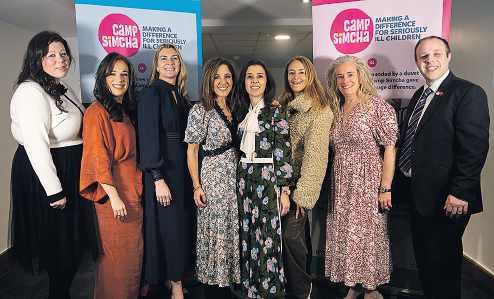

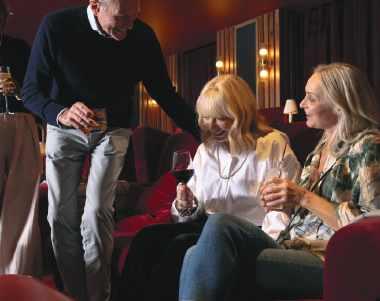

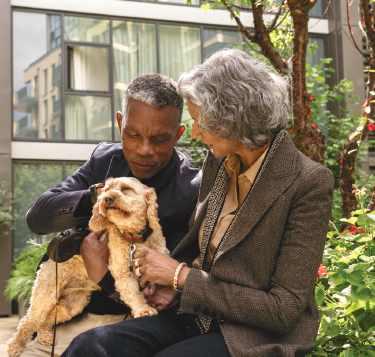
Most people don’t dream of retirement homes, they dream of never needing one. That’s why Riverstone was created, a new kind of living for over-65s; luxury apartments and penthouses, bespoke wellbeing and unrivalled service. Because it’s not just where you live, it’s how you live.
Experience the

your private
Dancing queen
The tax man
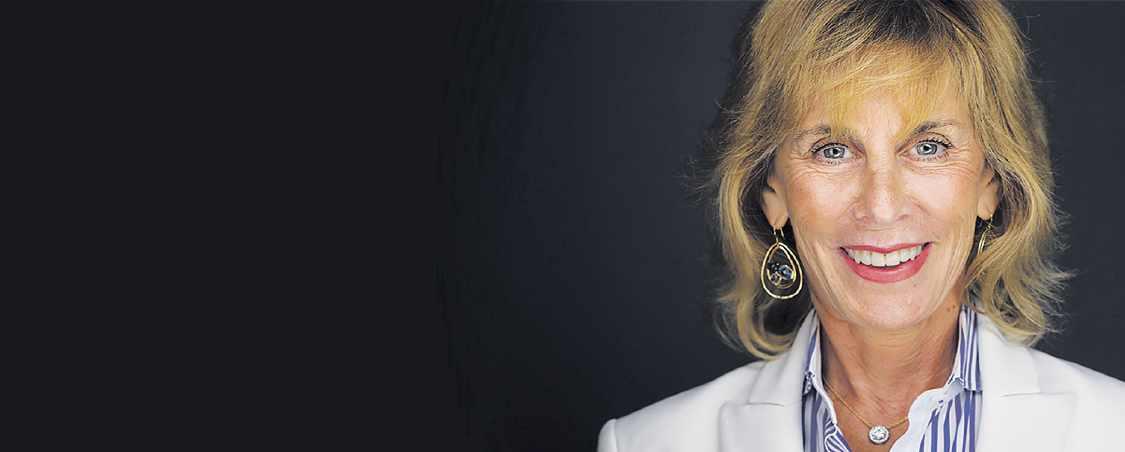
‘We
stories’
By Jenni Frazer
When you have celebrities like Javier Bardem using words like ‘genocide’, quoting figures from the [Hamas] terrorist organisation, or just spreading plain old lies — and those lies become ‘truth’ on social media because people don’t bother to look beyond the headlines — that’s a real problem.”
Nancy Spielberg is talking about Hollywood – a place she knows well, and where her surname carries immense weight. But the youngest sister of Steven Spielberg has built her own formidable reputation as a producer of hard-hitting documentaries, and she is deeply concerned by what she sees unfolding in the United States.
“From what I know and what I read,” she says, “Hollywood is having a battle within itself over this. There are lots of people who are closet supporters of Israel – and what happens is, they get banned or cancelled.
“Soon after October 7, one of the biggest fights was what kind of statement the Directors Guild or the studios should come out with. They said, ‘We’ve got to be fair’. You had to denounce terror, support Israel, and also say you felt horrible for innocent Palestinian lives that were lost. You couldn’t just say one thing.”
She adds: “In America, when it was Black Lives Matter or the MeToo movement, God forbid you should say all lives matter. But Jews don’t get that. We don’t get to stand in the spotlight and say that right
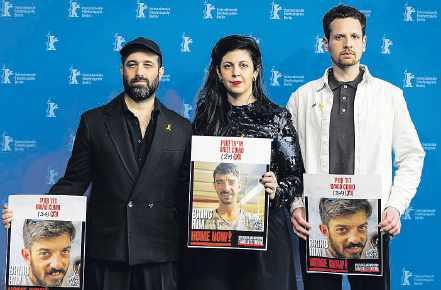
now it’s about us. Because as soon as we defended ourselves, we were not the victims any more.”
Spielberg was speaking ahead of the UK Jewish Film Festival screening of her latest project, A Letter to David — an extraordinary film directed by Israeli filmmaker Tom Shoval. The documentary began as a response to the Hamas attacks of October 2023, when Shoval revisited his own 2012 feature Youth to tell the true story of the Cunio brothers, who were caught in the maelstrom of that horrific day.
David Cunio and his twin, Eitan, had been the teenage stars of Youth, a fictional story about two brothers staging a kidnapping to help their financially-struggling parents. A decade later, the real-life brothers were living on Kibbutz Nir Oz when Hamas invaded.
Eitan narrowly survived; David and their younger brother Ariel were taken hostage and held in Gaza for more than two years.
After their capture, Shoval discovered a box of tapes that David had filmed, showing life on Nir Oz – the close-knit community, the laughter of neighbours, and families like the Bibas, whose tragic fate the world would later come to know.
Those tapes form the emotional core of A Letter to David, which premiered earlier this year while the brothers were still in captivity. In October they were finally returned to Israel after 738 days as hostages.
Shoval has pledged to revise the film’s ending once David himself has seen it.
Spielberg, who joined a Q&A after the London screening, was in Israel when the attacks began but was evacuated back to the US.
Jake Paltrow (brother of Gwyneth), who’s a family friend, told her about Tom Shoval and what he was doing, and she said: “I’m in.’”
Known for acclaimed documentaries such as Above and Beyond (about Jewish-American pilots who helped found Israel’s Air Force), Vishniac (on the pre-Holocaust photographer Roman Vishniac), and Closed Circuit (about a 2016 Tel Aviv terror attack), Spielberg has made it her mission to ensure Jewish stories are told.
“I felt that the question of who are the victims was not being addressed,” she says of A Letter to David. “And I also believed that the film needed a pair of eyes that was not Israeli.”
Although the film was well received at Berlin’s International Film Festival in January, Spielberg and Shoval were stunned when a UK festival invited them – then rescinded the invitation.
“The reasons they gave were that they were literally being terrorised by the prospect of violent demonstrations. How tragic it is that they succumbed. But people aren’t brave,” she says.
Undeterred, Spielberg continues to push Jewish storytelling forward.
“If we don’t make the films, then we’ve allowed them to silence our voices,” she says.
To help sustain those voices, she co-founded Jewish Story Partners with her brother’s Shoah Foundation and producer Roberta Grossman. “The idea is that Jews need to understand what Jews are – because we’re lots of things
– and people who aren’t Jewish need to understand that too to find empathy.”
Even major platforms struggle to draw viewers to these stories. “Paramount took a few films – We Will Dance Again, The Children of October 7, and Red Alert – but I was told that, even though they took them, there are not a lot of viewers.”
Spielberg calls herself “the unwilling activist”. Throughout her long career, she’s resisted trading on her brother’s name, though she acknowledges that now “the recognition helps – better this way, to do good, using my name to help my people”.
Her heart remains in Los Angeles at The Milky Way, the beloved kosher restaurant founded by her late mother, Leah Adler, and the family have kept it open in her memory. “My mom loved that restaurant,” she smiles. “On her last birthday, three weeks before she died at 97, we had a party there –Kirk Douglas came, she was smoking a cigar, and she was such a pisser!”
Despite the weight of the stories she tells, Nancy Spielberg finishes on a note of hope, quoting the late Rabbi Sacks: “We should go for less ‘oy’ and more ‘joy’.”

Hands up if, as a child, your parents were regularly trying to stop you watching too much TV. It seems almost laughable when reflecting on a time that had a fairly small number of options available. Contrast with today, and the unlimited amount of programming and content of all kinds that we have at the press of a button or a tap on our phone.
The overwhelming number of options inspired me to write my latest book, Streaming Wars. I’m obsessed with our current media environment – Netflix, Spotify, YouTube Disney+, Apple TV+, Spotify, Amazon Prime and everything else – and wanted to unpack it all, both for readers and myself.
Researching this book revealed to me a world that is even more complex than I thought when I started the project.
Alongside the mainstream services that so many of us use, there is a host of specialist ones that readers will likely never have heard of.
From handball to horror movies, heavy metal to Bollywood, there is a streamer for whatever you want to watch. And they almost all want you to stump up a monthly or annual payment. This is both fantastic and frustrating. The access we have to TV programmes, films and movies is better than ever before. I’ve rediscovered childhood classics and new favourites across the various catalogues.
On the production side, the growth of streaming has allowed more risky programming to be made. This has given actors, writers and directors opportunities they might not have had back when everything had to fit into linear TV schedules.
However, these developments have also made it increasingly hard for us as consumers to navigate where the things we want actually are. How often do you have to Google where to find that new series you want to watch? How many times have you given up trying to decide what to watch – and overwhelmed by choice –gone back to scrolling on your phone instead?
Sport is a crucial part of the story, too. Apart from major news events and rare standalone moments that people don’t want spoilt, like The Celebrity Traitors final or the end of Succession, sport is about the only thing people watch live any more.
An increasing number of live sports rights are being taken up by streaming services desperate not to miss out. In the UK, Amazon Prime Video shows tennis, a Champions League football match every Tuesday night, and some NBA basketball games too.
Things have gone even further in the US. NBC’s streamer Peacock shows most Saturday Premier League matches and has shown key NFL games. Prime Video is now one of the NBA broadcasters Stateside too.
Even Netflix, previously reticent of getting into live sport, has got in on the action, showing two NFL games on Christmas Day.

is only going to get more common.
The streaming services provide plenty for those looking to watch, or tell, Jewish stories. Take Nobody Wants This, for instance. Adam Brody’s Hot Rabbi returned to Netflix in October. There’s also Shtisel (Netflix), or The Marvellous Mrs Maisel (Amazon Prime Video), to name but a few. For adrenaline junkies needing something Israeli and dramatic, there is Fauda on Netflix and Tehran on Apple TV+.

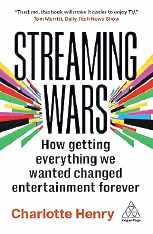

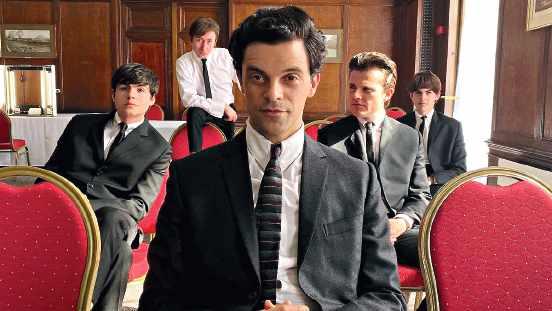

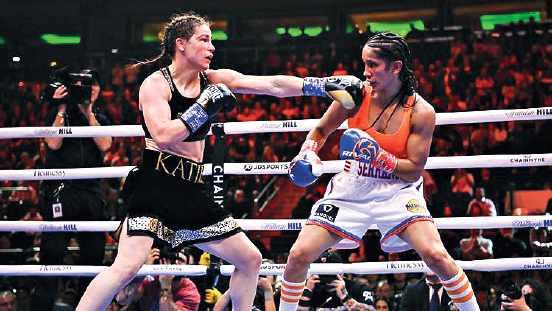
In July, it broadcast the Katie Taylor vs Amanda Serrano boxing bout – the finale to an epic trilogy of fights and the first all-female card at the iconic Madison Square Guardian. (Boxing and other fight sports, it’s worth noting, have long had a stream home on DAZN.)
The increasing interest in sports by streamers has made more contests of all kinds available.
Furthermore, we can watch them wherever we are. No more hoping your relative puts the TV on for Super Sunday on when you go visit –
you can hide in the corner and watch the match on your phone!
Of course, the move to streaming has also made things more fragmented. You can ultimately find what you want to watch, but sports fans must stump a lot of cash for multiple services if they do not want to miss a game. We need to get used to it though, because it
Jewish News’ own Brigit Grant’s film Midas Man is available to watch on Amazon Prime Video, telling the story of The Beatles manager Brian Epstein. These are all great ways to bring some elements of Jewish and Israeli culture in front of mainstream viewers. Meanwhile, specialist services ChaiFlicks and Izzy are dedicated to exclusively Jewish and Israeli programming. Such outlets would have been inconceivable before the streaming era. I wasn’t sure exactly what I would conclude when I started writing my book, but it seems clear to me that streaming has mostly been a good thing for the viewer. There is more programming, and it is more accessible, than ever before.
Israeli programming. Such outlets would
That’s not the whole story though. We are now starting to see rebundling, with various services o ering shared subscriptions in a way that looks eerily reminiscent of cable television. People do not want to and cannot a ord to take out an unlimited number of subscriptions. The fallout from the rise of the streamers was also a large part of the reason why Hollywood was plunged into strikes for most of 2023. All of this is going to develop more over time. The streaming wars are just getting started.


With 28 private en-suite bedrooms, 18 outpatient consulting rooms and a range of onsite services for all your healthcare needs, Highgate Hospital’s commitment to quality is reflected in its attentive staff, modern facilities and a focus on continuous improvement.
Patients likely see the same healthcare professionals throughout their treatment, building trust and consistency. Staff have the time to focus on each individual’s specific needs and a comfortable, uncrowded atmosphere contributes to a relaxed and reassuring experience.
The hospital works with over 150 healthcare professionals, many of whom also work in the NHS and are leaders in their field. A mix of male and female consultants ensures patients are comfortable throughout their journey. Patients are prioritised through compassion, respect and personalised care, supported by clinical expertise, ongoing learning, and a commitment to quality and safety.
Consultants must meet strict criteria set by the Hospital’s Practicing Privileges policy that ensures compliance with clinical frameworks and registered bodies. A medical advisory committee supports the clinical decisions to facilitate practicing at our hospital.
The hospital’s dedicated staff has more than 100 members,
Highgate Hospital is the ideal destination for both outpatients and inpatients, offering personalised care, privacy and efficiency that set it apart from larger institutions

including highly experienced nurses, physiotherapists, and radiographers. All of our nurses are registered with the Nursing and Midwifery Council.
Patient care meets the highest safety and quality standards, and Highgate Hospital continually improves its services while promoting an inclusive, supportive and tolerant environment. There is a selection of freshly prepared meals, thoughtfully prepared on-site to meet dietary needs and religious preferences, with kosher meals available upon request.

Comfortable, modern inpatient rooms are spread across two floors with a nurse’s station on each ensuring that patients are closely monitored. Outpatient consulting rooms are each equipped with modern technology tailored to their respective specialties. Accredited operating theatres are supported by a team of dedicated specialist staff, ensuring the highest standards of care. There is also a private GP service offering same day appointments and an onsite pharmacy. One stop clinics offer a range of tests including diagnostics,

blood tests, physiotherapy or minor ops.
Hospital Director Barnette Lessem was born in South Africa and made aliyah in 1977. Having grown up in a medical family, since relocating to London with her family in 2001, Barnette has worked in private healthcare and now leads Nuffield Health The Holly and Highgate Hospitals and is keen to forge excellent relationships with the local community.
“At the heart of our hospital is a team driven by compassion, professionalism and a shared commitment to excellence,” she says. “I believe in leading with transparency, trust and respect, empowering each member of staff to take ownership of their role and how they contribute to patient care. We encourage a culture of continuous learning, where feedback is valued, and innovation is encouraged. By nurturing collaboration across
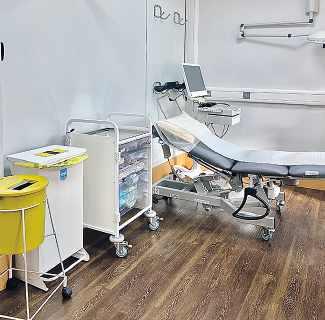
departments and recognising individual strengths, we create an environment where both staff and patients feel supported, safe, and heard. My role is to ensure that every decision we make reflects our core values and puts peoplepatients and staff - first.”
Nuffield Health The Holly Hospital in Buckhurst Hill complements the offering, with a dedicated one-stop breast clinic, ophthalmology suite and MacMillian Accredited cancer care service. The Holly is also registered to treat children.
Looking ahead to 2026, Highgate is privileged to be part of a large GE imaging replacement project that will see the imaging team receive brand-new, state-of-the-art diagnostic imaging equipment, with a full departmental upgrade scheduled for next year.
nuffieldhealth.com


In Israel, thousands of children and teenagers wake up each morning to challenges most of us can scarcely imagine: complex medical treatments, limited mobility and growing dependence on their families and caregivers.
For more than two decades, Simcha LaYeled (Joy for the Child) has been a source of light and connection for these children. The Israeli nonprofit organisation supports children and teens living with physical disabilities but without cognitive impairment. Its mission is simple: to restore joy, friendship, confidence and a belief in their own potential – things that illness or limitations too often take away.
“Every child deserves to grow up with a sense of value, connection and belonging,” says Eli Kellerman, CEO of Simcha LaYeled. “We are here to make sure that no child has to face life’s challenges alone.”
A unique circle of support
Simcha LaYeled’s holistic model of care integrates social, emotional and practical support. The organisation offers longterm one-on-one mentoring, connecting each child with a dedicated volunteer who becomes a friend, companion and role model, creating a consistent anchor in the child’s life.
Simcha LaYeled runs social groups and enrichment activities throughout Israel, visits more than 51 paediatric hospital wards, and organises fully accessible summer and winter camps that enable children to experience independence, adventure and friendship in an inclusive environment.
The organisation also offers emotional and social frameworks for parents and siblings, along with a Next Step program that helps graduates transition to adulthood with skills for employment and community engagement.
Each year, more than 26,000 children and family members benefit directly from Simcha LaYeled’s activities. This far-reaching network is powered by over 1,000 trained volunteers, many of them teenagers.
Simcha LaYeled works in an ongoing and meaningful partnership with the
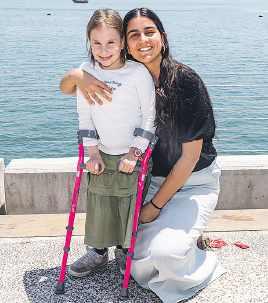

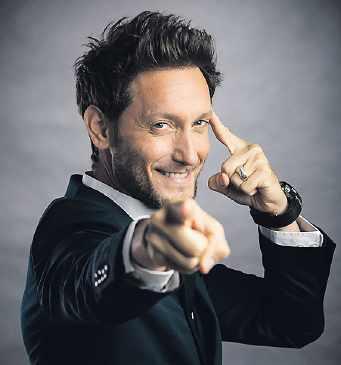
“I’m delighted to be part of an event that brings together people, communities, and hearts.” Lior Suchard
Jewish National Fund and is proud to stand together.
“There is something truly remarkable about the work of Simcha LaYeled,” says Lior Suchard. “Their ability to give genuine hope to children and families is deeply moving. I’m delighted to be part of an event that brings together people, communities, and hearts.”
Standing strong in times of crisis
“Our community doesn’t stop when crisis hits,” says Kellerman. “If anything, it grows stronger.”
In the aftermath of October 7, families of children with disabilities faced intensified hardship: sudden relocations, repeated hospitalisations, loss of medical access and heightened anxiety. Simcha LaYeled swiftly evacuated families to safe and accessible areas, provided tailored psychological and therapeutic support, created alternative recreational programs for displaced children and expanded its mentoring network.
This rapid response demonstrated not only operational efficiency but the depth of the organisation’s communal fabric; volunteers, professionals, and donors mobilised overnight.
A night of unity and hope in London
On 7 December there is a special gala evening in London dedicated to supporting the children of Simcha LaYeled.
The evening promises inspiration and entertainment in equal measure: a live performance by international mentalist Lior Suchard; hosting by beloved actress and comedian Shani Cohen; a fully kosher community reception; networking; and first-hand stories from the organisation’s work in Israel.
All proceeds will directly support the organisation’s therapeutic programs, mentorship initiatives and family assistance projects. More than a fundraiser, this event is a bridge connecting compassion across continents. It will be an opportunity to meet the leaders and
volunteers who turn the idea of kindness into a daily reality for children who refuse to be defined by their limitations.
How to take part
If you wish to support this very special evening, a minimum donation. Once your donation has been made you will be contacted with further details.
To donate, please visit: www.jgive.com/ new/he/ils/donation-targets/157472
(Please note: this page is in Hebrew but you can click at the top to change it into English and you can change the currency to GBP).
Jewish News is the proud partner for this event.

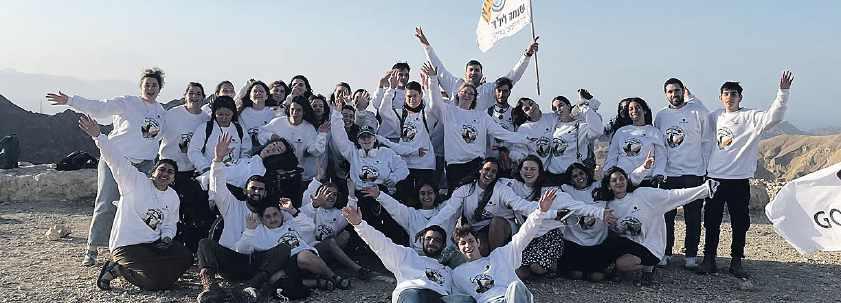

All hail to the new ‘Queen of Simcha’
“It seemed a good idea at the time” has become something of a personal mantra, but sitting backstage at the Arts Depot, hyperventilating, desperate for the toilet and grasping the hand of dance partner Ted, I really wanted to slap the version of me who’d agreed to do this.
I was the penultimate performer at Maccabi GB’s inaugural London Strictly Dancing. The auditorium was packed with friends and family; four judges, including Vanessa Feltz; compere Rachel Creeger and a slew of photographers and cameramen. Strictly No Pressure.
My chosen charity, Jewish Child’s Day, was fundraising for a new nursery garden at Kibbutz Be’eri, devastated on 7 October 2023. I had to do this.
Ted, resplendent in black sequins, encouraged me to take deep breaths and suggested I meditate on a single word. Nodding, I began repeating “Why? Why? Why?”
Along with 11 others, I’d arrived at Finchley’s Arts Depot at midday for a full six hours of tech and dress rehearsals. We were a group of 12 women with a diverse range of dancing experience fresh from six lessons with professional dancers to champion charities including Kisharon, Jami, Chai and Malki.
I chose Fireball as my dance track. Ironic, as that how my lungs would feel after the first 20 minutes of practise sessions. This was proper cardio.
The night arrived and suddenly, Rachel was introducing me, my video came on (complete with jokes about my Spanx cutting o access to my spleen), Ted and I stepped on to the stage, the music started, and o we went. What happened next is a blur but I did it. “You smashed it!” yelled Team Rosenberg.
Hand on heart, it was never about winning or what I’d be scored by the judges, but when they each gave me the holy dancing grail of 10, with head judge Vanessa Feltz pronouncing me the new Queen of Simcha, I was, for once, speechless.
We all trotted back onstage for awards, trophies and votes of thanks, and then it was o to the foyer to meet our family fan clubs.
It’s now late Monday afternoon. I can’t get the glitter o my face and I could sleep for a week. But I did it–raising nearly £3,500.
To my fellow dancers: Debbie, Deborah, Eve, Talia, Karin, Laura, Laurel, Natalie, Wendy, Joanna and Leah – kol hakavod. I know I speak for the group by saying that on the night, our inspiration was 30-year-old Talia Aziz, who has Down Syndrome and works at Kisharon Langdon Enterprise.
Hair in bejewelled braids, wearing a multicoloured glittering dress, she gathered us all together before the first performance and told us, very firmly, to go out, have fun, and dance. So I did.
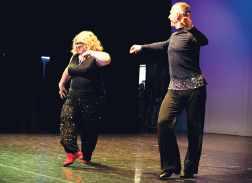
In
The spotlight was shining bright at the Arts Depot as Maccabi GB’s Dancing Strictly London 2025 made its dazzling debut in front of an audience of nearly 400 guests, raising more than £30k for key Jewish causes.
Hosted by award-winning comedian and broadcaster Rachel Creeger, the event saw 12 community participants take to the dance floor, each performing with a professional dance partner after months of training and fundraising for a charity close to their hearts.
The dancers were Debbie Marks (supporting Jami, part of Jewish Care); Deborah Lack (ORT UK); Eve Gee (JLGB); Joanna Leviton (Chai Cancer Care); Karin Zamek (Jewish Women’s Aid); Laura Swabe (Leket UK); Laurel Ingram (JVN); Leah Malkinson (Maccabi GB); Jewish News‘ own Michelle Rosenberg (Jewish Child’s Day); Natalie Grazin (Limmud); Talia Aziz (Kisharon Langdon), and Wendy Pater (The Malki Foundation UK).
Each contestant brought passion, commitment and a touch of sparkle to the performance, from fiery Latin and elegant ballroom to high-energy modern numbers.

laugh was made even more meaningful knowing it was all for such a wonderful cause. Winning it was beyond my wildest dreams and the real prize was seeing how dance and community spirit can come together to make a real di erence.”
Catching her breath after her performance, Joanna Leviton said: “Wow, what a night. Thank you to everyone who took part and all who donated.
other’s chosen charities was magical. I’m not the best, but I did my best, and I’m proud to have been a part of it!”

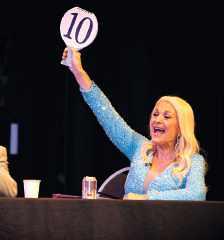
“So, so proud of everyone
ballroom. The
“So, so proud of everyone who stepped out their comfort zone and into the ballroom. The scores, the audience, the atmosphere was a-ma-zing.”
This was the first time Maccabi GB has hosted Dancing Strictly London, inspired by the success of the event created by Manchester Maccabi, who have proudly run their own version for the past 10 years. The London edition continues that legacy, bringing together the community through dance, friendship and giving.
Thanking the dancers and everyone who made the night possible, Maccabi GB chief executive Ashley Lerner said: “We’ve laughed, cheered and supported these remarkable charity dancers, who have put themselves out there, not just to win the glitter ball, but as we have heard, to raise funds and awareness for their charities and bring that important Jewish joy to us all.”


The judging panel consisted of Vanessa Feltz, the head judge; founder of Dream of Dance, Joan Lee; professional choreographer and performer Ilai Szpiezak, and dancer Jessica Sidoli.
Their expert feedback, combined with an audience vote, led to two winners being announced on the night: The Judges’ Winner was Karin Zamek, while the audience winner was Leah Malkinson.
Karin Zamek said: “Taking part in Dancing Strictly London has been one of the most joyful and rewarding experiences of my life.
“Every step, every rehearsal, and every
Laurel Ingram added: “Our Dancing Strictly London, run by Maccabi GB, was an absolute fabulous success. All the 12 dancers were dazzling on the stage and we all raised a huge amount of money for our individual charities.
GB, was were
“Vanessa Feltz’s comments were so eloquently and meaningful about everyone. Keep dancing everyone –remember if you don’t use it, you lose it!”
Eve Gee said: “What a spectacular day of glitter and glamour! I loved meeting the other fabulous contestants who had worked so hard on their performances. Sharing stories, celebrating our achievements and learning more about each
Paying tribute to those involved in the horrific attack which took place at Heaton Park Synagogue on Yom Kippur, he added: “Tonight’s event also comes at a time when our thoughts are with our friends and family in Manchester.
“We remember with love and respect Adrian Daulby and Melvin Cravitz.
“In their honour and in their memory, the Jewish community will never stop doing what we do best, coming together, celebrating life, and bringing Jewish joy to one another.”
Lerner concluded the evening by saying: “At Maccabi GB, we believe in building a healthy, active and proud Jewish community, integrated within British society. And tonight, we have truly seen that in action.”
A warm Jewish home, providing outstanding residential, nursing, dementia, respite, rehabilitation and palliative care
Residents benefit from specialist care, without the need to travel.
In-house services include:
GP, Pharmacy Technician, Audiology, Dietitian, Speech & Language Therapy Physiotherapy, Occupational Therapy & Clinical Psychology Support
As a charity, we can provide financial support for those unable to meet the full cost of care.
For more information, please scan the QR code or contact us at ResidentsServices@nightingalehammerson.org or 020 8673 3495
NIGHTINGALE HOUSE
LONDON SW12 8NB | 020 8673 3495
HAMMERSON HOUSE, WOHL CAMPUS LONDON N2 0BE | 020 3838 8090
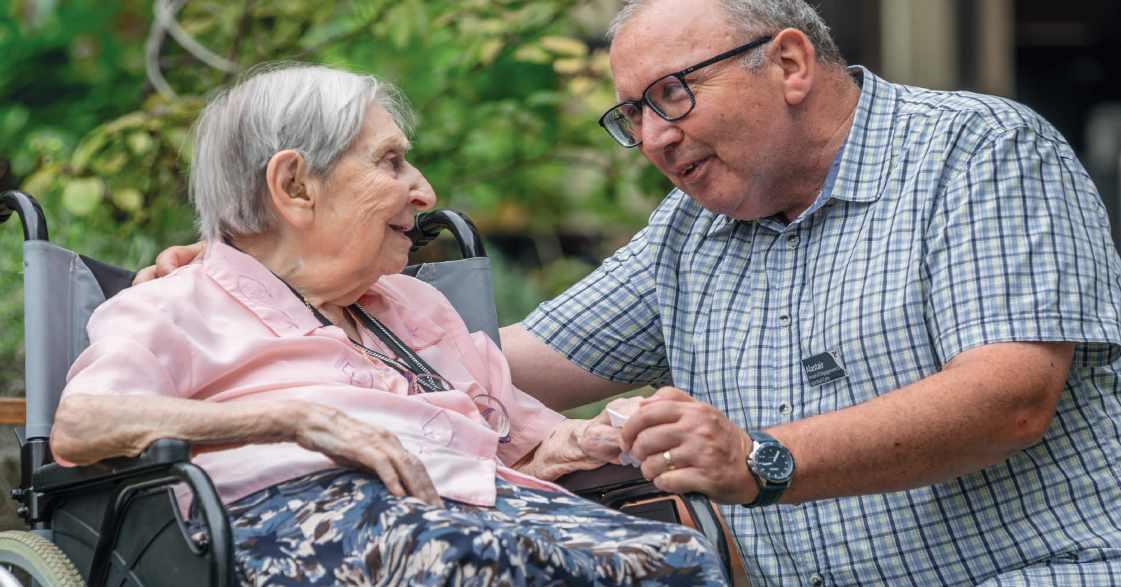

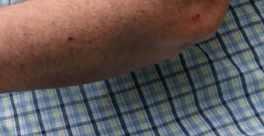




By Candice Krieger candicekrieger@googlemail.com


Former Cli ord Chance partner Dan Neidle did not set out to become a public figure, but he’s rarely out of the headlines, writes Candice Krieger
ax has rarely dominated the headlines quite like it does today. As politicians are toppled by undeclared gains, public figures scramble to explain o shore structures and talk of tax hikes ahead of this month’s Budget fuels front-page speculation, one name keeps reappearing: Dan Neidle.
The former Cli ord Chance partner, who helped expose former Conservative Party chairman and Chancellor Nadhim Zahawi’s multimillion-pound capital gains settlement, has become Westminster’s go-to tax sleuth –and the UK’s most trusted voice on what the small print really means.
When tax stories erupt, it’s Neidle who cuts through the jargon. A former City lawyer turned think-tank founder, he has built a huge following – more than 170,000 on X and 62,000 on LinkedIn – for his calm explanations of complex rules and his willingness to call out misinformation.








With the November Budget looming –and an estimated £20-£30bn fiscal hole to fill – pressure on Chancellor Rachel Reeves is intensifying.
Neidle is blunt about the choices she faces.
“You can either fill it with cuts, or you can fill it with tax rises. But it’s a fantasy to pretend there’s some magic third option,” Neidle tells Jewish News. “Unless we face up to the situation, our public services, which are already cr*p, will keep getting worse,” he says.
“What we need isn’t tweaks or tinkering –it’s serious reform. The tax code has become a ratchet that only ever gets worse. It’s now one of the least competitive in the developed world – worse than Italy and Greece – because of its sheer complexity. Unless we face up to that, our economy is going nowhere.”
Endless leaks about possible Budget measures, he adds, are damaging. “They scare people o investing or moving house. People tell themselves they’ll ‘wait until after the Budget’. This can’t be good for growth.”

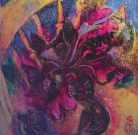






Neidle founded Tax Policy Associates in 2022 as an independent, non-profit thinktank to improve tax and legal policy, provide expert analysis, and inform public debate. He shot to prominence the following year when he uncovered Nadhim Zahawi had underpaid millions of pounds of capital gains tax.
A self-confessed “tax nerd”, Neidle dug into publicly available information, explained the likely mechanics, and concluded that Zahawi had underpaid almost £4m of capital gains tax and lied about it.
Zahawi’s lawyers sent a threatening letter warning him o . Neidle published the letter, stood by his analysis, and was ultimately vindicated when Zahawi admitted to the settlement and was dismissed by Sunak. “When I published my findings, he threatened to sue me,” says Neidle. “By then I had an audience I’d never anticipated. People wanted facts without spin, and I was giving them that.”
has pushed tax into the headlines in a way I’ve never seen before.”
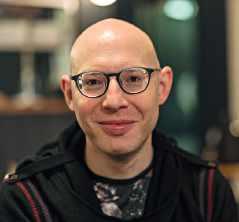
He stresses that the profession is misunderstood. “There’s this caricature of tax lawyers spending their days dreaming up innovative schemes to help people avoid tax. The reality is very di erent. Big corporates are far more cautious now than they were in the 1990s or 2000s. The real aggressiveness comes from smaller businesses and individuals – they’re the ones pushing boundaries.” His prescriptions for reform are as forthright as his analysis. He argues for cutting employee National Insurance and raising income tax instead. “That would mean a tax cut for most workers, while shifting more of the burden onto landlords and retired people.”
Employer NI, he says, is “just about the worst way to raise money because it hits jobs and the low-paid hardest”. Stamp duty should be scrapped entirely. “It’s an anti-growth tax.”
More recently, Neidle cast a critical eye over Labour’s former deputy prime minister and housing minister Angela Rayner. The controversy centred on whether Rayner should have paid capital gains tax on the 2015 sale of a former council house she declared as her main residence – a saga that eventually forced her resignation after weeks of political pressure.
Neidle did not set out to become a public figure, nor Britain’s uno cial tax watchdog. After joining Cli ord Chance in 1998, he qualified as a tax lawyer. By 2008 he had made partner and eventually became head of tax at the firm’s London o ce.
Over a 25-year career, he advised corporates, governments, regulators, central banks and NGOs on tax and tax policy.
The pandemic forced a reassessment. “I loved being a lawyer, but I also hated how tax was being covered – too many people with agendas shaping the debate. So I thought, why not set up a think-tank?”
It quickly attracted attention from journalists, policymakers, businesses and individuals. To avoid potential conflicts, he undertakes no commercial work, and donates all his fees for writing and speaking to charity.
His contributions have not gone unnoticed.
In 2023, he was listed by The Lawyer as one of the 100 most influential lawyers in the UK, and by International Tax Review as one of the 50 most noteworthy tax figures worldwide. In 2024, he received the John Stokdyk Outstanding Contribution to Accounting award.
Tax now enjoys a prominence it never used to. “You’ve got multinationals accused of avoiding billions, politicians embarrassed by their personal a airs, and a public sense that ordinary people are carrying too much of the burden,” Neidle says. “That combination
He is also critical of recent reforms to inheritance tax, which he says leave loopholes for avoiders while penalising ordinary homeowners, small businesses and family farms. “You end up with small companies and farms broken up to pay the bill while those with slick advisers get away unhurt. That cannot be right.”
For Neidle, Britain’s problem is not that it taxes too much – Scandinavian countries raise more – but that it taxes badly. “[Scandinavian countries] manage to raise money in a stable, rational, competitive way. We do the opposite. Our system is irrational, anti-growth, and it keeps getting worse.”
The UK has long been notorious for having one of the world’s most complex tax codes. That complexity, he warns, has opened the gates to an increasing number of unregulated operators selling questionable schemes to ordinary taxpayers. Last month, Neidle published an investigation into the unregulated firm Property118. “They market ‘family investment companies’ to landlords as an inheritance tax magic bullet. But the structure is based on a misunderstanding of the law and will leave many clients with six-figure tax bills – not when they die, but now.
So, what will we see from Rachel Reeves in the Budget later this month? Neidle isn’t one for making predictions. “I tried that when I thought that employer National Insurance couldn’t go up but it did. It’s a dangerous game.” But what he can be sure of is that he is “not optimistic about the direction of travel”.
“Unless politicians level with the public –that either we pay more tax, or we accept fewer services – we’re in trouble. If neither side is willing to be honest, then we’re heading for a dark place.”
•



Suits from £79.50
Overcoats from £79.50
SUITS NOW FROM £69
Trouser Bargains £25
OVERCOATS FROM £69.50
10 Golders Green Road
London NW11 8LL
Opposite Cafe Nero
TROUSERS £20 EACH, 2 PAIR FOR £30, 28-48 INCH WAIST
SPORTS JACKETS AND BLAZERS FROM £39.50
CASUAL JACKETS FROM £29.50
KNITWEAR FROM £10
SHIRTS FROM £10
SHOES FROM £15
Open everyday & Sundays til 5:00pm
Raincoats from £49.50 We accept Large Sizes a speciality


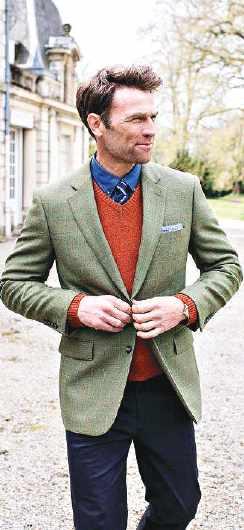
From individuals items and specialist collections to complete house clearances, removals, and probate valuations. We do as much as you needjust ask !!!
• As an independent broker acting on your behalf, I aim to get the highest prices for your pieces
• No need to worry about posting your valuables
• I sell through many different auction houses, high-end dealers, collectors and private clients
• With over 18 years in business you will always receive my personal discreet one-to-one service
• Free consultations at your convenience
We
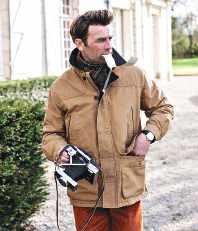





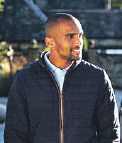



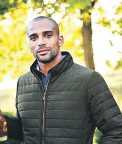








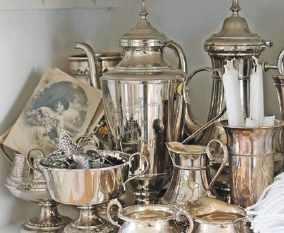
TAKE ADVANTAGE OF THE VERY HIGH PRICES FOR GOLD, SILVER & JEWELLERY - CALL NOW FOR A HOME VISIT

In our thought-provoking series,
rabbis, rebbetzins
and educators
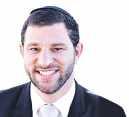
relate the week’s parsha to the way we live today
BY RABBI STEPHEN DANSKY CRANBROOK UNITED SYNAGOGUE
was 100, she was like a lady of 20 who is not held responsible for her sins, and when she was 20, she was as beautiful as a girl of seven.
A core concept of Judaism is we are more than our physical essence. Every morning, Jews are required to say the words: “My God, the soul that you placed within me is holy.” In this way, we remember it is what is inside that really matters. Solomon expressed this idea succinctly when he wrote “beauty is vanity”.
It is therefore surprising that when Rashi discusses the death of Sarah, he suggests beauty is more than just a present wrapping for what is inside.
The Torah tells us in this week’s parsha Chayei Sarah that she was 100 years and 20 years and seven years. Why, ask the sages, does the Torah separate out each set of years with the extra “and”? Rashi answers that when she
Sarah is being praised for her physical beauty. She didn’t need Nivea oils or other skin products. Her skin was as supple as a sevenyear-old’s. If physical beauty is indeed vanity, why does the Torah praise Sarah in this way?
There are a few hints from this comment that would suggest beauty is not skin deep. When one is 20 years of age, the skin is still firm and supple. It would have been useful when she was 100 to look like a 20-year-old debutante, with fresh glowing skin devoid of wrinkles. Rashi points out that she was as morally innocent at 100 as a young lady of 20, not as beautiful as a young woman of 20.
For these reasons, we need to see beauty in a di erent light.
There are many beautiful things about seven-year-olds, which I as a father of two girls have witnessed and delighted in, but I would

and 2022 We are hiring: NURSERY KEY WORKER
Tuffkid Nursery
London NW11 9HG
Hours: 5 days a week (term time only)
Mon - Thurs 8.15am – 3.45pm
Friday 8.15am – 1.30pm
Start date: 5 January 2026
like to focus on just one. Little girls are just … so happy! They have a joy that bubbles out of them, expressing itself in overflowing ripples of laughter, smiles and dance moves, which appear spontaneously at any given time. This joy and happiness is so beautiful to see, and is contagious, no matter how silly the joke.

Rabbi Naftali Tzvi Berlin (1840-1880) says Sarah had this irrepressible joy all her life. She was in a constant state of joy and this, according to our sages, allowed her to have even greater divine inspiration than her husband Abraham, the beloved of God. Sarah did not have an easy life by any means. The Torah opens its description of her as barren. She lived 90 years without having children, and this would have broken many a woman’s heart. Furthermore, Sarah was kidnapped, not once, but twice – first by Pharaoh, and then later on by Avimelech. Both events could
Tuffkid Nursery is looking for a vibrant and enthusiastic Nursery Nurse/ Key Worker to join our passionate and dedicated team and work with special needs and mainstream children, following EYFS guidelines.
Experience with Special Educational Needs is not required as full training will be provided. NVQ Level 3 in Childcare, or willingness to undertake, is required.
Salary: Competitive, based on experience and qualifications.
Benefits: Excellent training days with top professors, Employee Assistance Programme and many more employee benefits.
Closing date: 20 November 2025
Interviews: Week commencing 21 November 2025
Please apply online today with your updated CV and cover letter.

easily have traumatised her and broken her will to have joy. We are therefore told, in praise of Sarah, that she possessed irrepressible joy all the days of her life.
It isn’t easy to do. It takes massive strength of character, resilience and inner peace despite all the fates that befell her. To be happy when you want to cry, to dance when all seems lost, is true beauty and it is for this reason that the Torah mentions her inner beauty for all to see. May we all merit to have the strength to be beautiful all the days of our lives – every one equal in joy and happiness, no matter what.


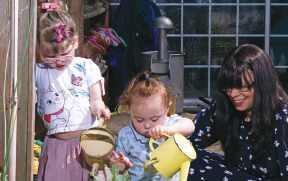


BY RABBIS JOSH LEVY AND CHARLEY BAGINSKY CO-LEADS OF PROGRESSIVE JUDAISM
We are commanded to remember
Each year, as the nation pauses for remembrance, the Jewish community gathers too, at the Cenotaph, in our synagogues, in schools, and in the quiet of our own homes, to remember.
For us, remembrance is not only an act of national belonging, but a profoundly Jewish act.
The Hebrew word zachor (remember), is one of the most repeated commands in our tradition. We are commanded by Torah to remember both the moments of deliverance and the times of darkness, so that memory becomes a bridge between past and future.
Both of us have stood at the Cenotaph in recent years, representing the Progressive Jewish community alongside veterans and communal leaders.
We have also joined the annual AJEX parade, where Jewish servicemen and women
march with pride, honouring those who served before them. At Holocaust Memorial Day ceremonies, in synagogues and civic spaces, we have read names and lit candles for those who had no graves.
Each of these moments of remembrance connects us, not only to Jewish history, but also to the moral purpose at the heart of Judaism itself: that memory must lead to responsibility.
For both our families, that connection is deeply personal. Josh’s grandfather, Rabbi Isaac Levy, served as a chaplain to the British Armed Forces during the Second World War, tending to Jewish soldiers across Europe. He later helped rebuild Jewish education in Britain after the war’s devastation.
Charley’s grandfather, Kurt Baginsky, came to this country from Germany to escape the camps, joining the British Army even as two of his brothers remained behind and were murdered in the Holocaust.
For us, remembrance is never abstract – it is the story of family, of survival, of loyalty and
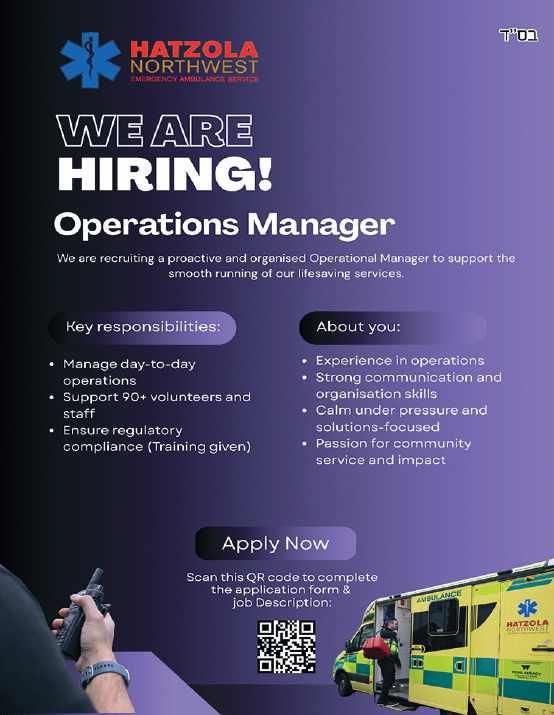

of hope. As British Jews, our remembrance carries a double resonance. We remember as part of a nation whose freedom was defended by people of every faith and background.
And we remember as Jews whose history has been shaped by exile, loss, and renewal, a people who understand what happens when humanity forgets.
That dual identity, British and Jewish, calls us to gratitude and vigilance at once: grateful



A stimulating series where our progressive rabbis consider Judaism in the face of 21stcentury issues
for the safety and belonging this country has given us, and vigilant in protecting those same freedoms for others.
Progressive Judaism teaches that remembrance must always be active.
It is not about nostalgia or even sorrow alone.
It is about shaping a world that honours the sacrifices of the past by preventing the recurrence of hatred, war and dehumanisation.
We remember those who fought for freedom and those who died because others denied them theirs. We remember to build bridges, not walls; to stand against antisemitism and all forms of prejudice; to seek peace even when peace feels far away.
This Remembrance Day, as we stand once again in silence, we do so as Jews and as British citizens – shaped by our past, inspired by our faith, and committed to the Jewish belief that to remember is not only to look back, but to also choose life, dignity and peace in the world we are still creating together.














Jewish News is delighted to be entering a digital-first era with the launch of a new website and new regular glossy magazine. We are therefore seeking an enthusiastic, emerging sales force to help navigate this new era and to sell these exciting new products alongside opportunities with our portfolio of events and community-leading social media presence.
• Achieving personal and team sales targets. Working to the teams agreed yield and series framework.
• Championing digital first solutions with a particular focus on substantially growing New Business.
• Building and developing strong client relationships and attending meetings and events.
• Identifying revenue opportunities from new and existing accounts and selling solution based integrated campaigns.
• Successfully communicating and introducing digital campaigns to existing print clients.
• Effectively selling across the website, digital publications, social, newsletters, magazines and more.
• Working closely with the Jewish News Publishing and Editorial team to ensure a smooth and commercially successful relationship.
• Working with the Social Team to sell and implement new parthership content.
• Liaise with the Head of Finance to ensure all revenue is accurately reported and invoiced.
• SALARY: Approx 36k plus generous commission package but flexible depending on experience
ANTIQUES
Antique – Reproduction – Retro Furniture (any condition)
Epstein, Archie Shine, Hille, G Plan, etc.
Dining Suites, Lounges Suites, Bookcases, Desks, Cabinets, Mirrors, Lights, etc.
House clearances
Single items to complete homes
MARYLEBONE ANTIQUES - 8 CHURCH STREET NW8 8ED 07866 614 744 (ANYTIME) 0207 723 7415 (SHOP)
closed Sunday & Monday
STUART SHUSTER - e-mail - info@maryleboneantiques.co.uk
MAKE SURE YOU CONTACT US BEFORE SELLING


Furs, Jewellery, Old Costume Jewellery, Watches, Silver, Designer Bags, anything vintage. 01277 352560

Friendly Family Company established for 30 years We clear houses, flats, sheds, garages etc. No job too big or too small! Rubbish cleared as part of a full clearance. We have a waste licence. We buy items including furniture bric a brac.
For a free quote please phone Dave on 07913405315 any time.


Confidential Bereavement Counselling for adults and children individually. Support Groups available. We offer in person, online and telephone counselling. Contact Jewish Bereavement Counselling Service in confidence. 0208 951 3881 enquiries@jbcs.org.uk | www.jbcs.org.uk
Call our Legacy Team on 020 8922












eaving Your Legacy
Monday-Friday 12:00-4:00pm – 2 course lunch, starters and main £16.95. Happy to celebrate in style – birthday and events day. Every Friday, 7pm-9pm live music plus happy hour.



















